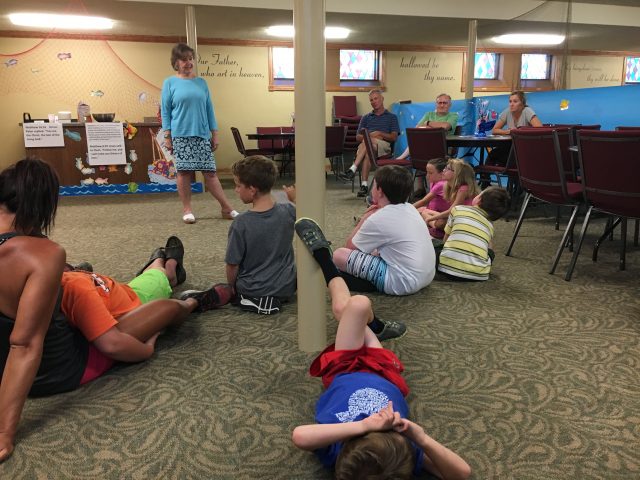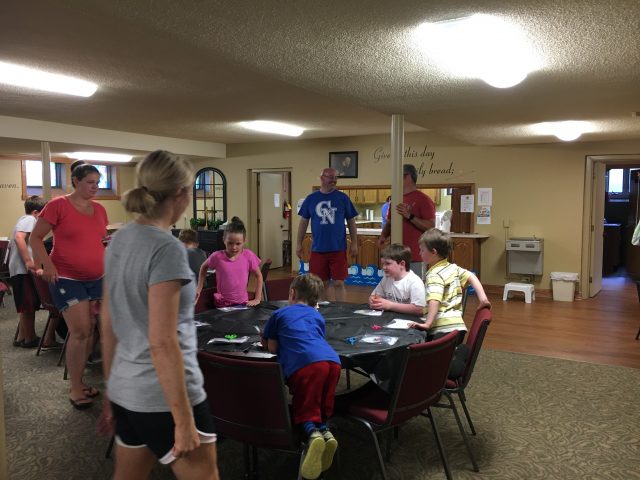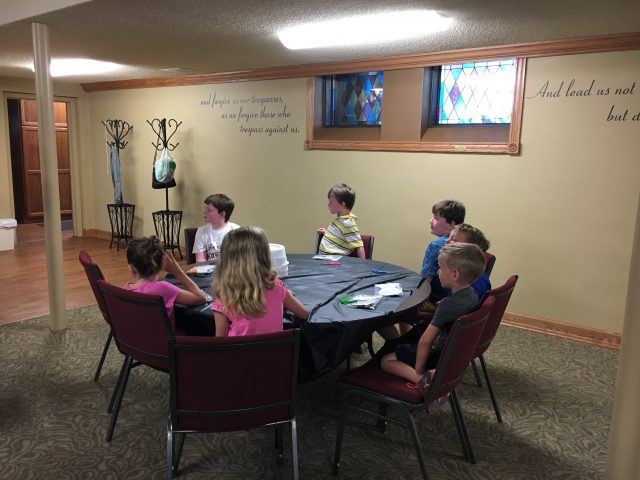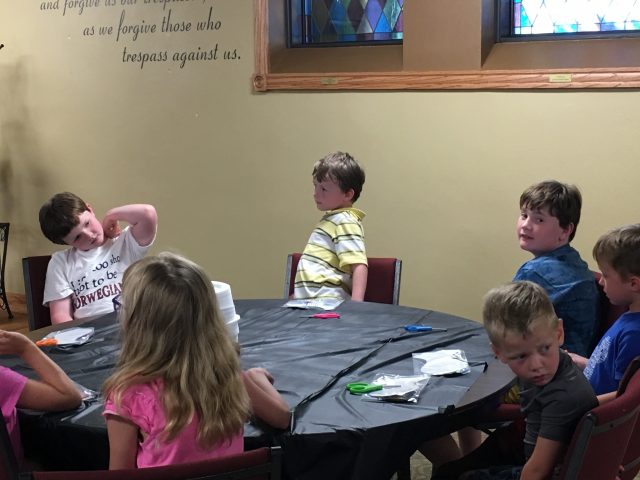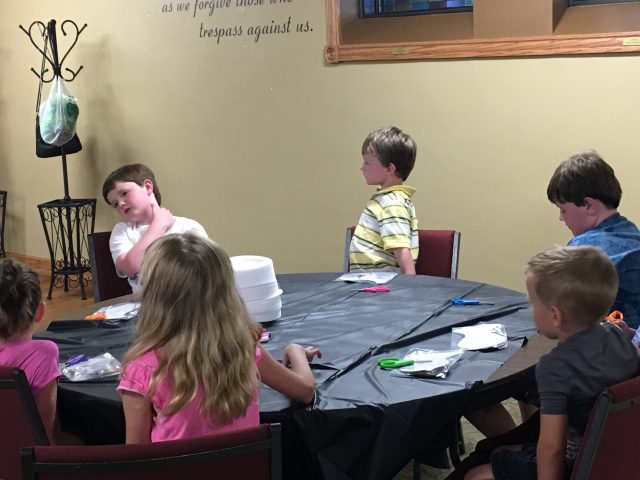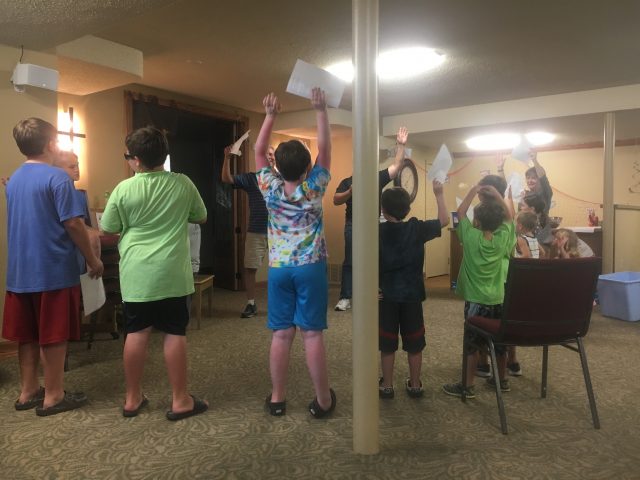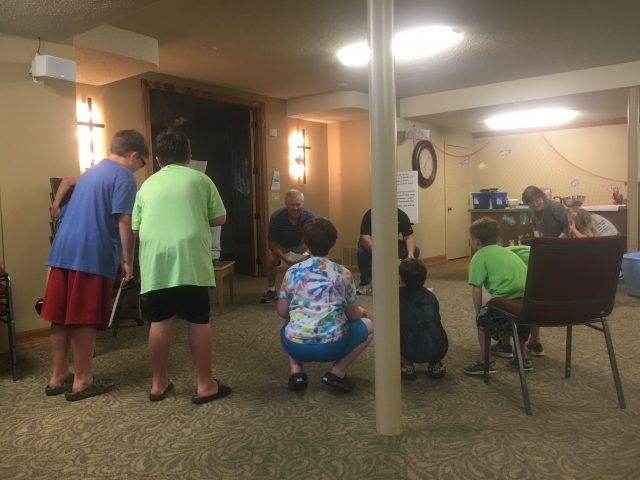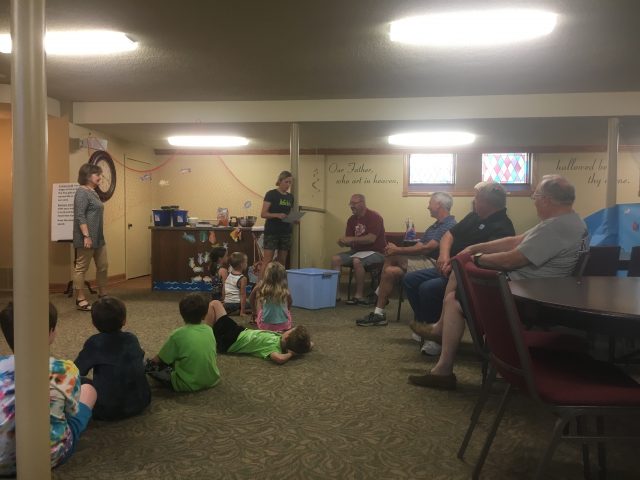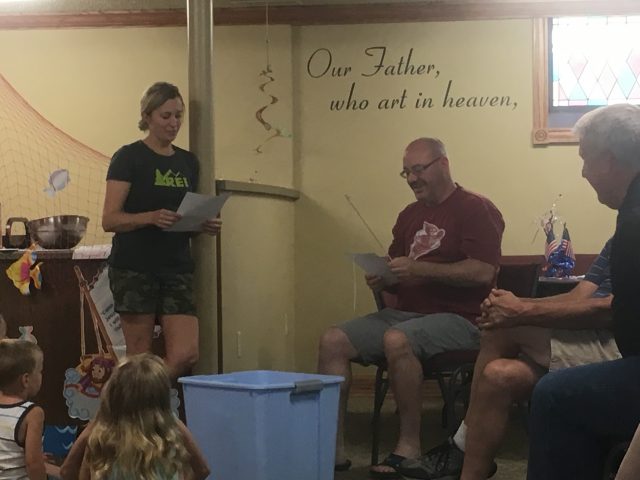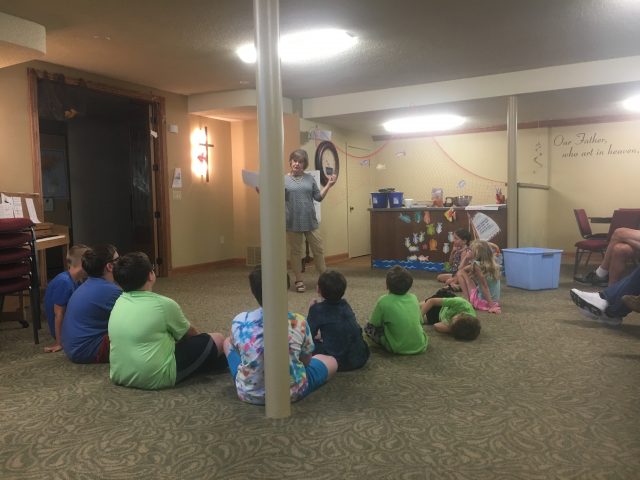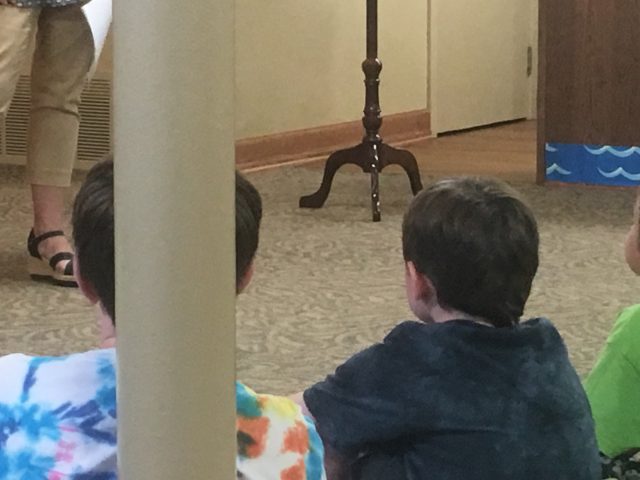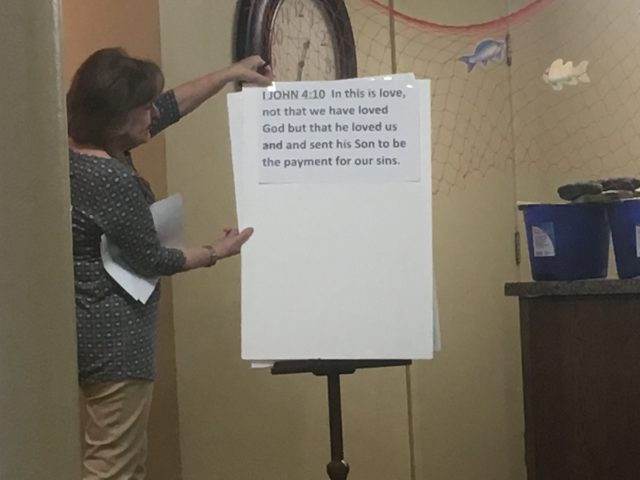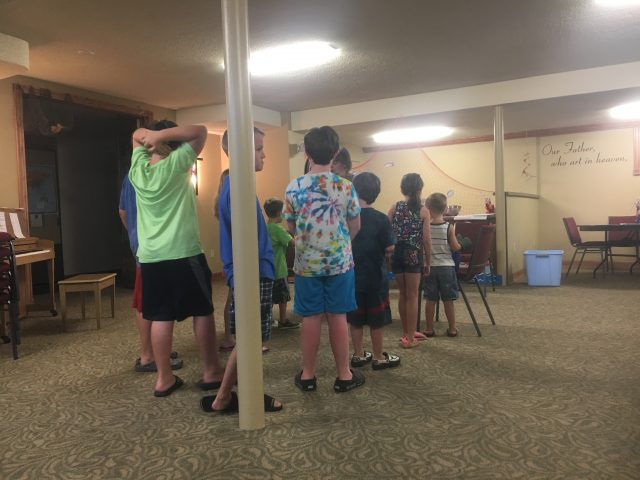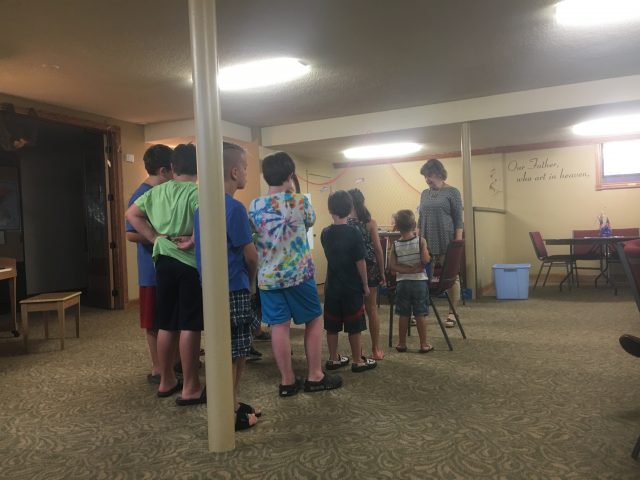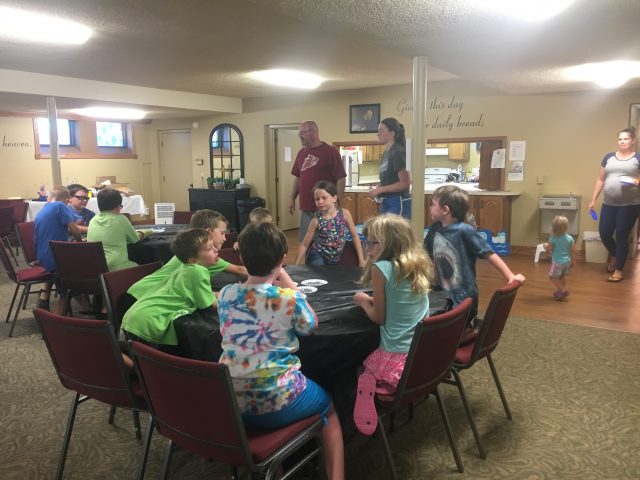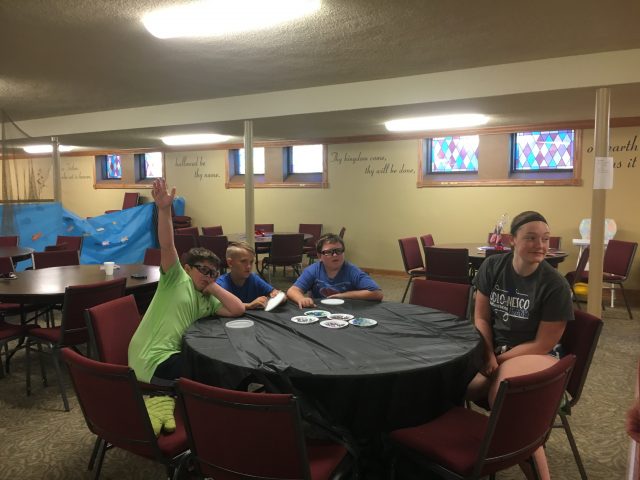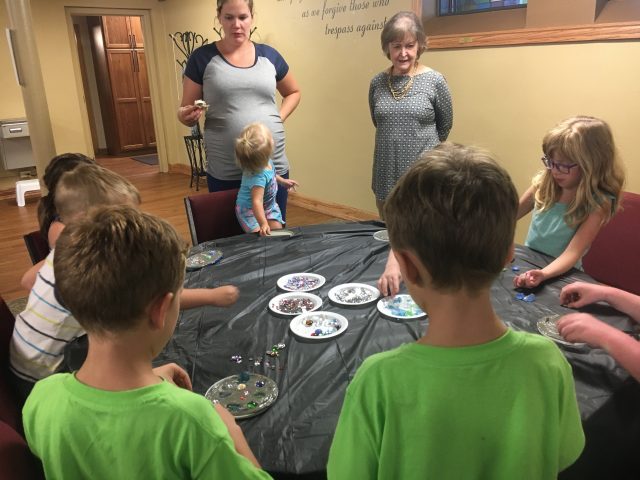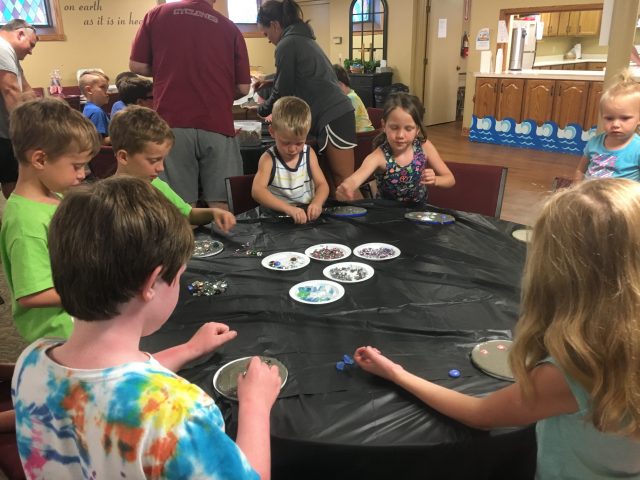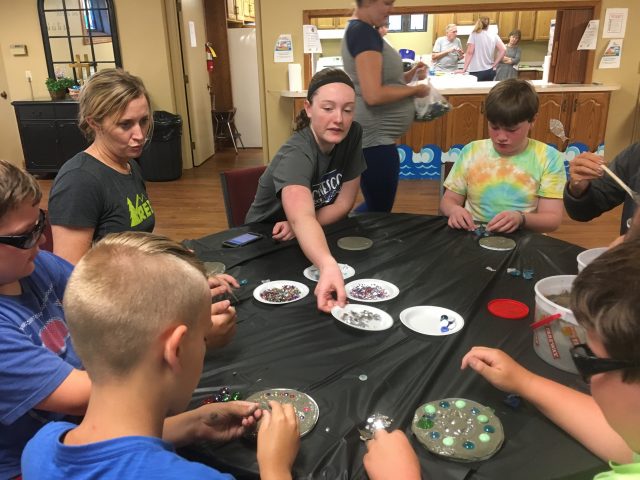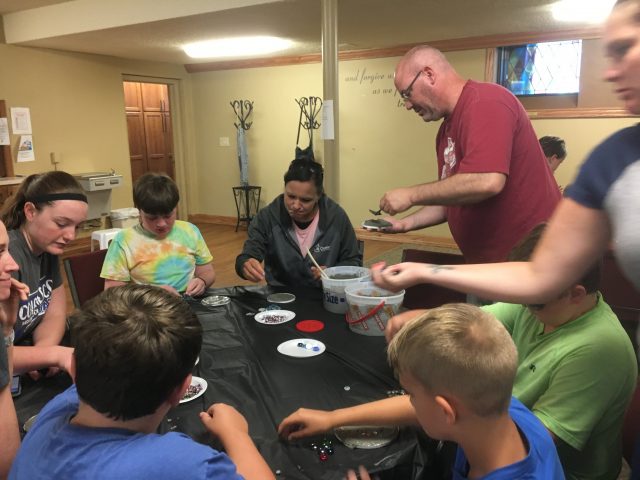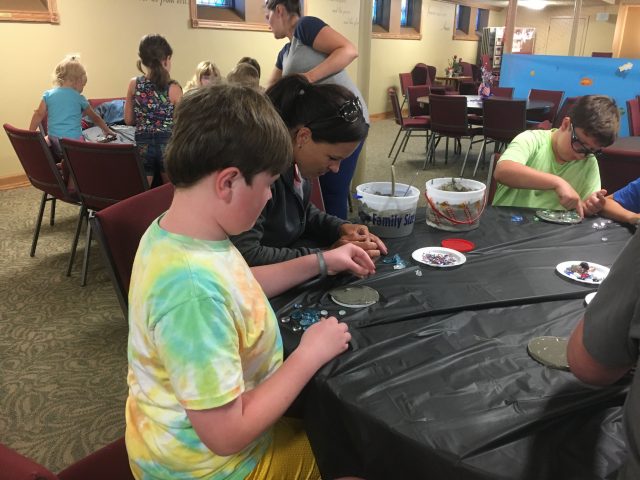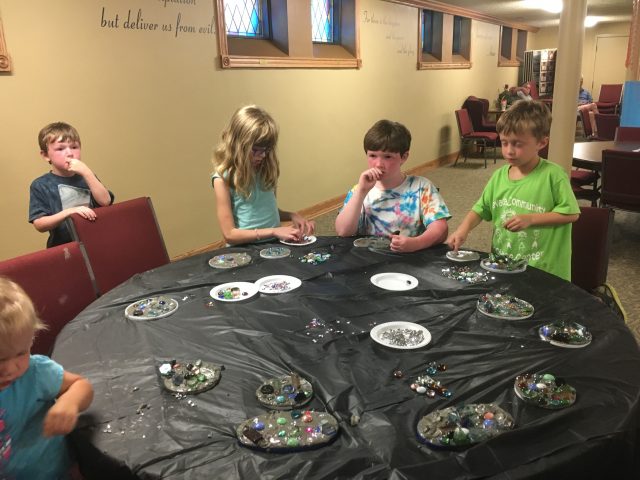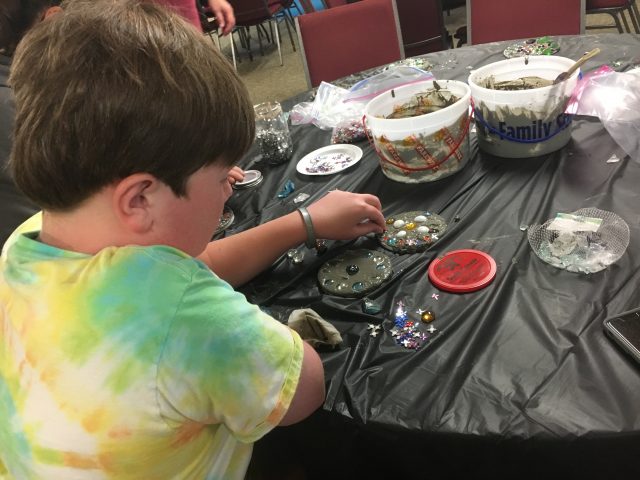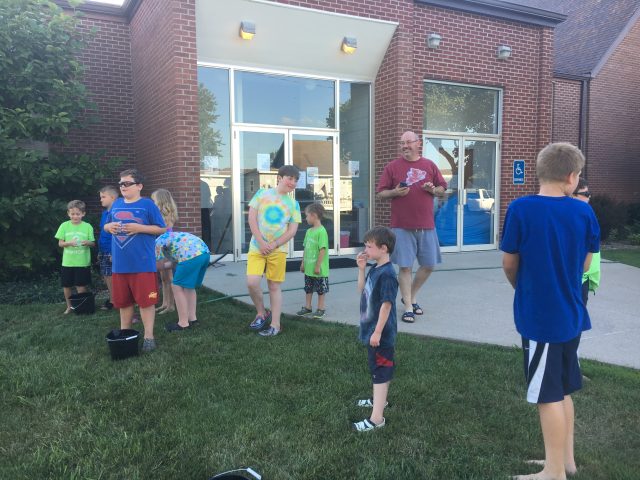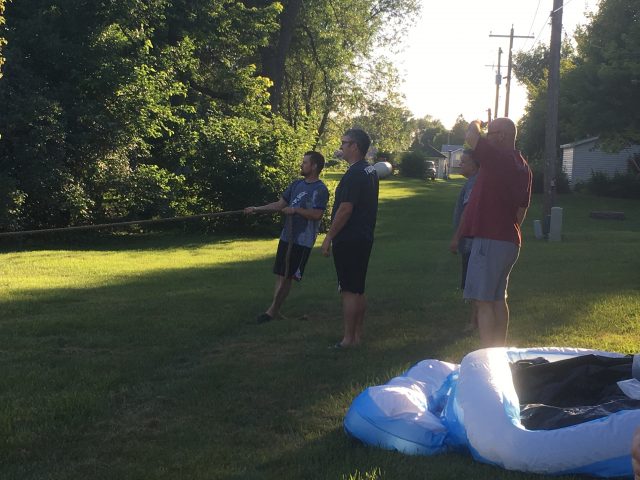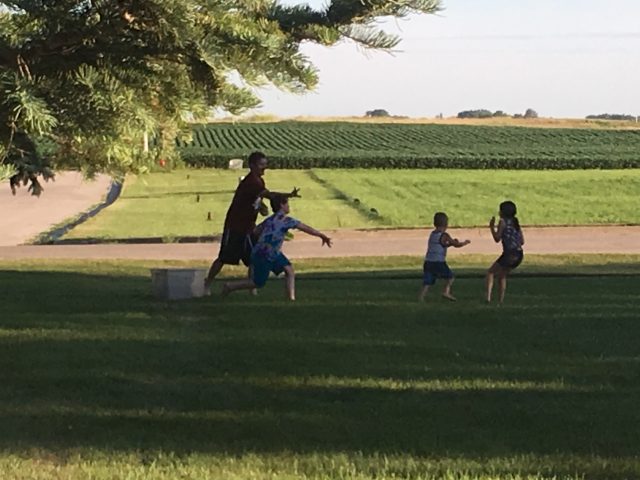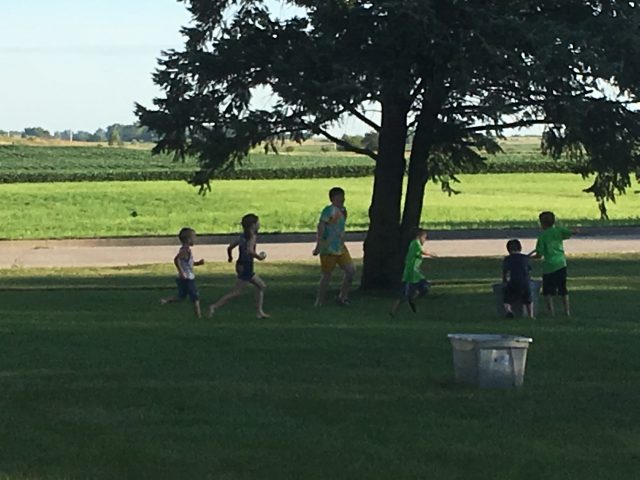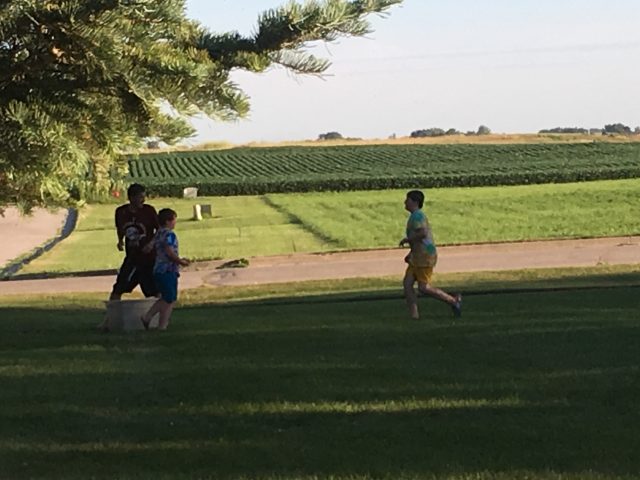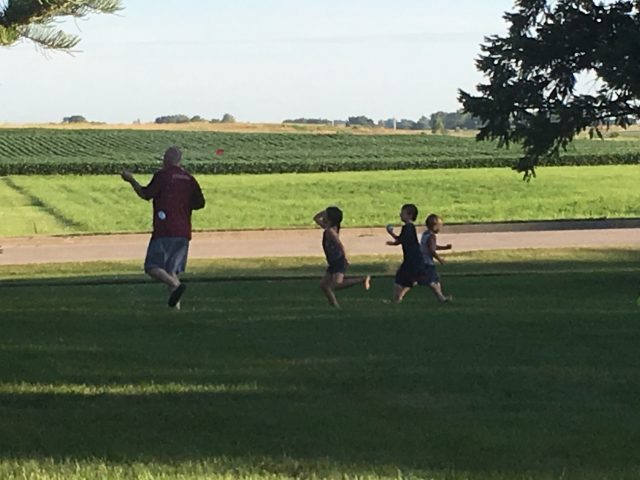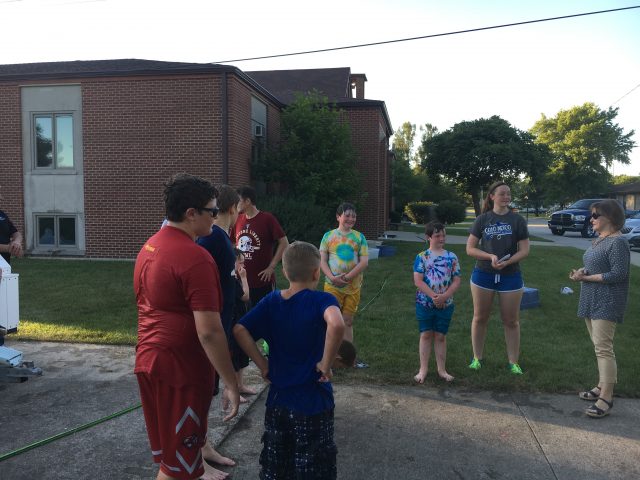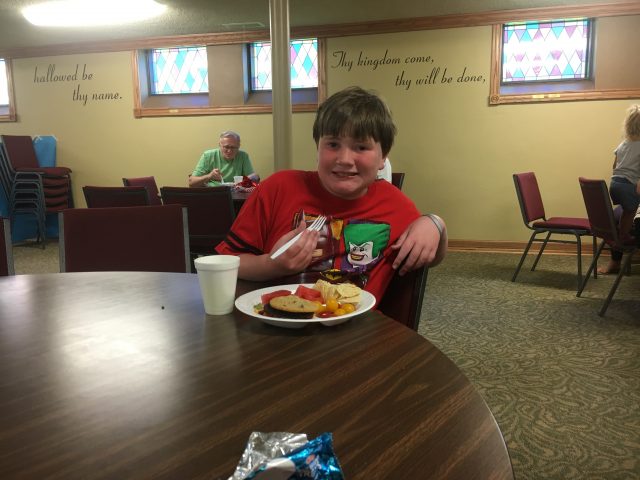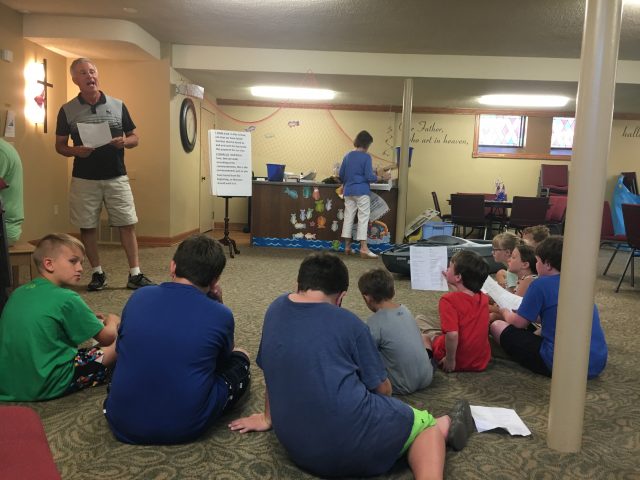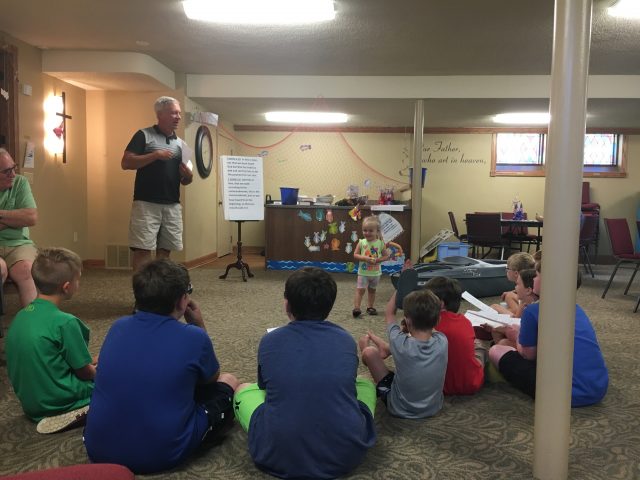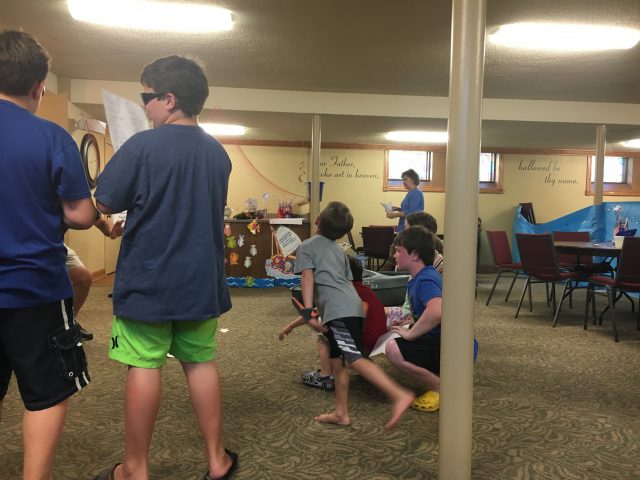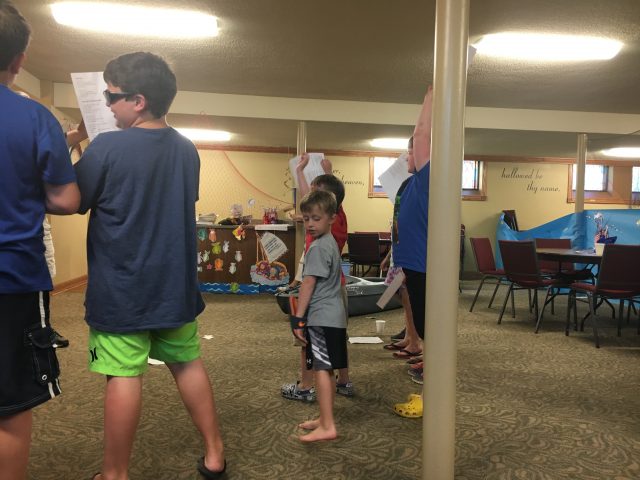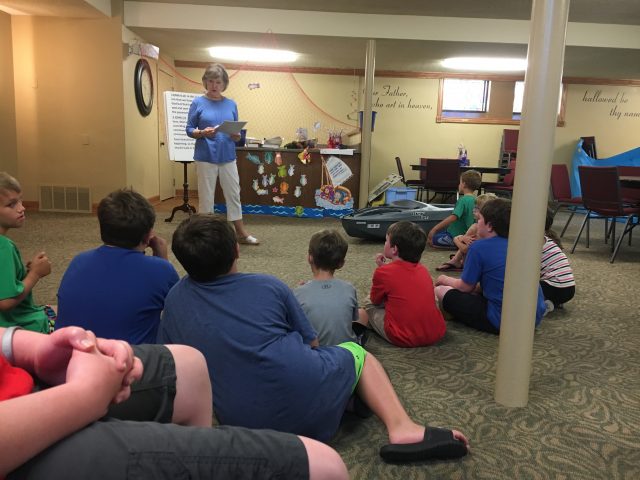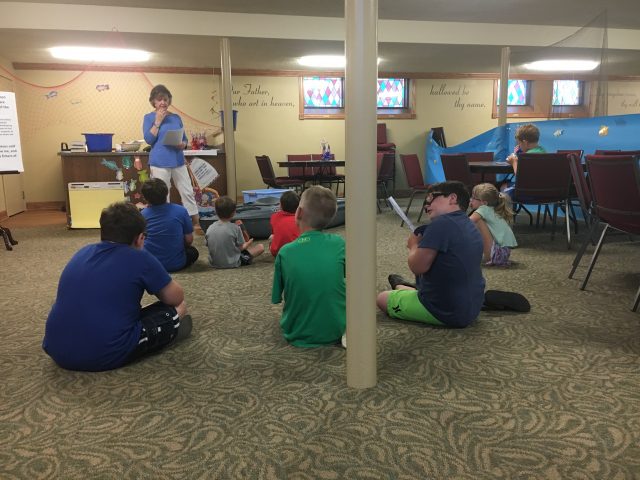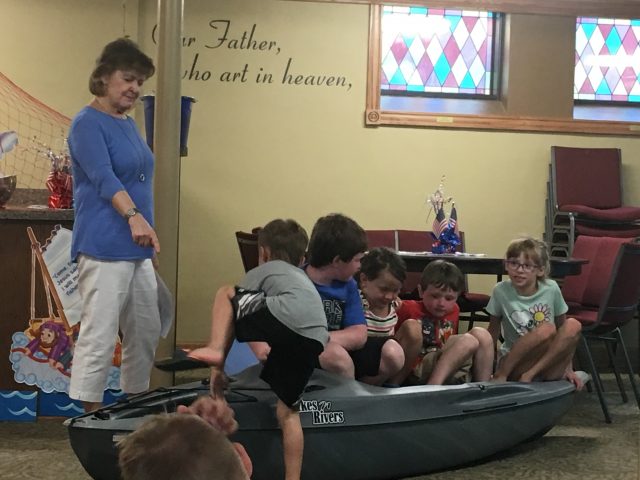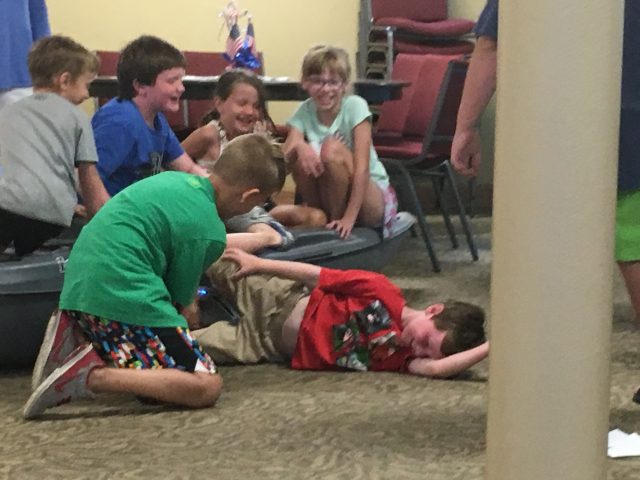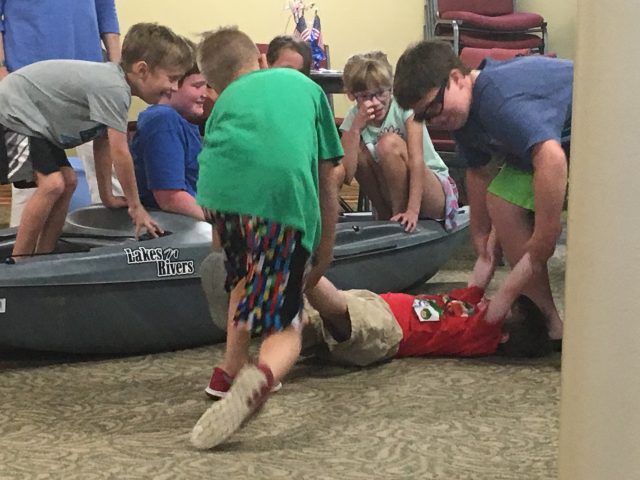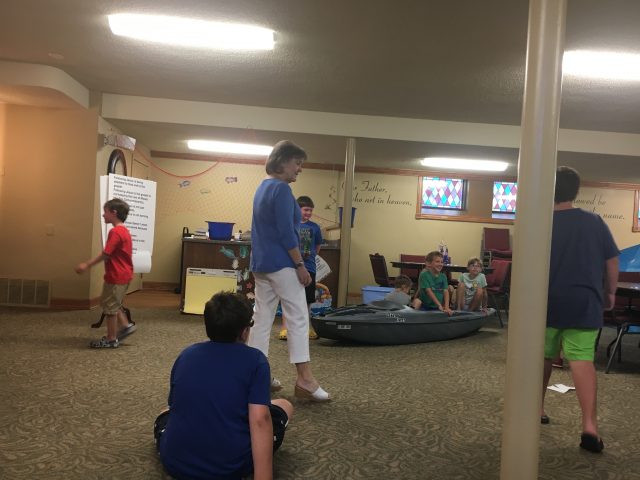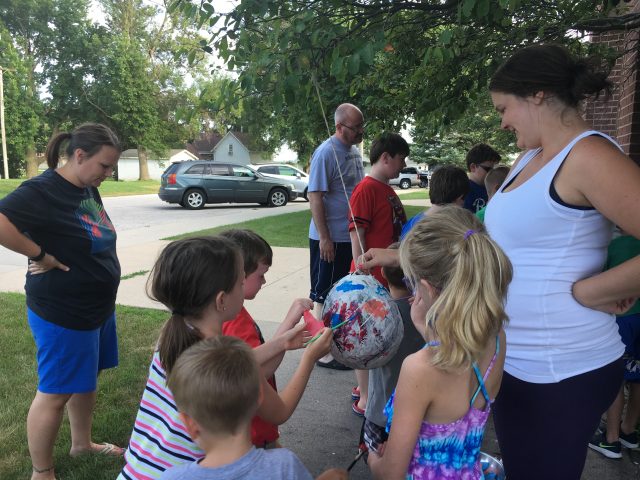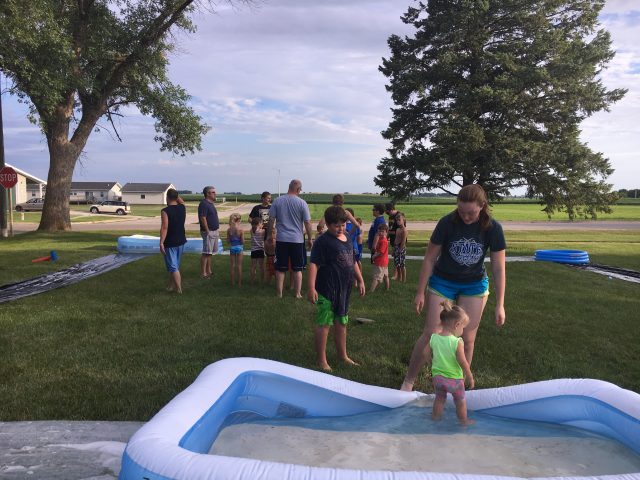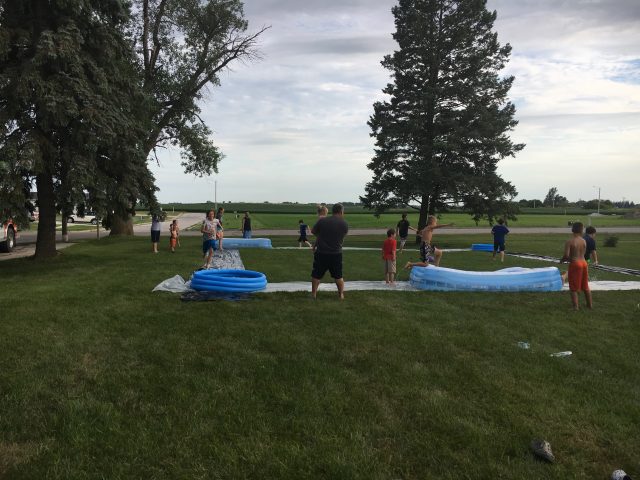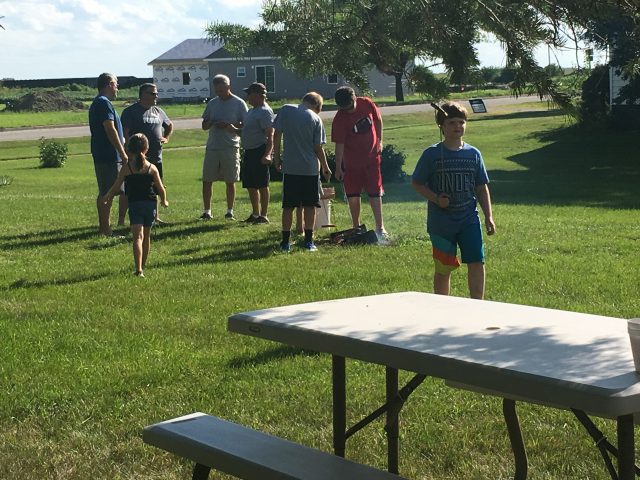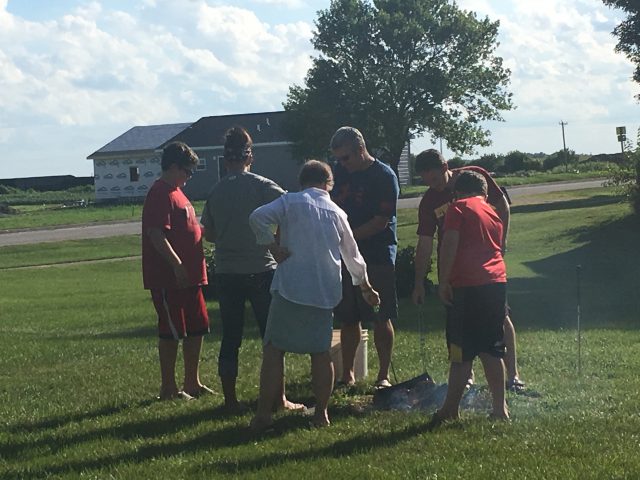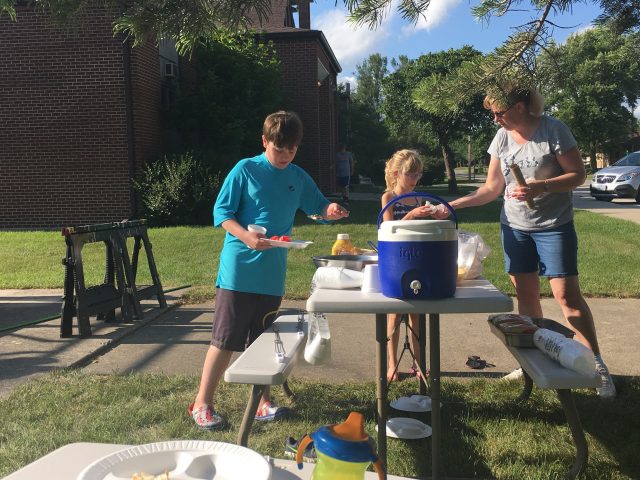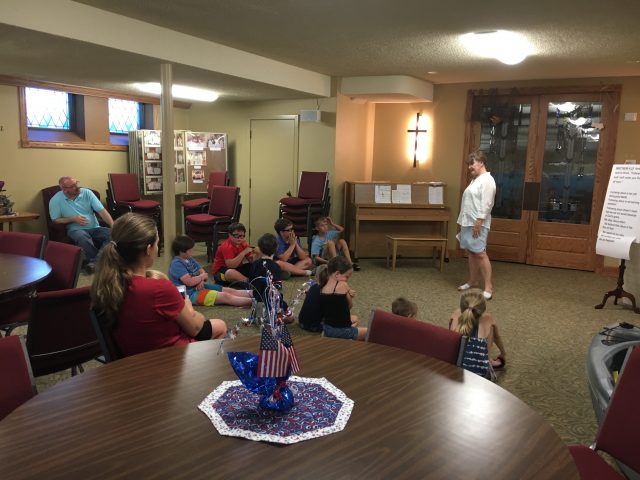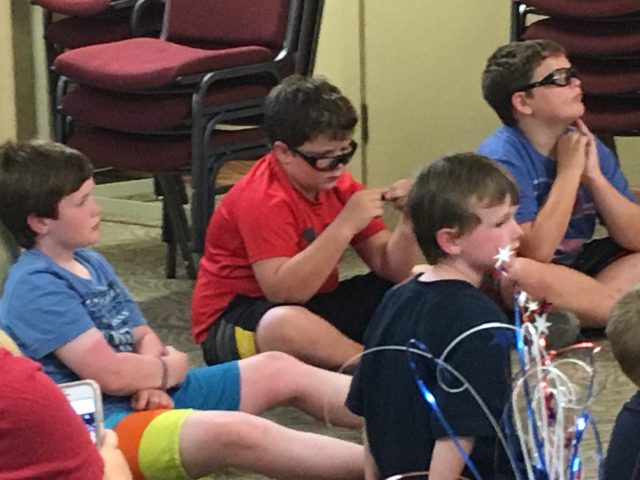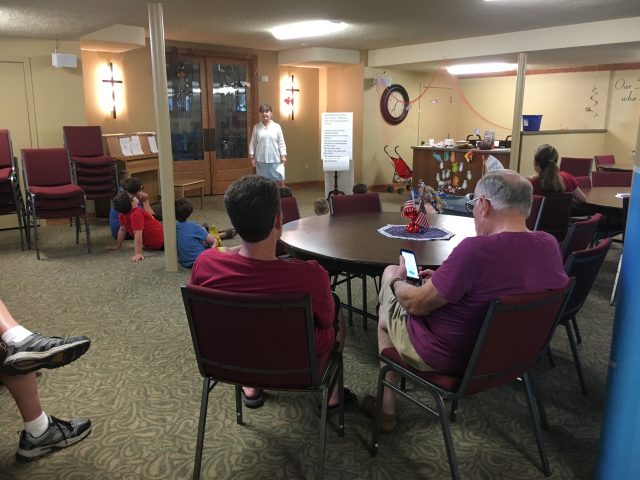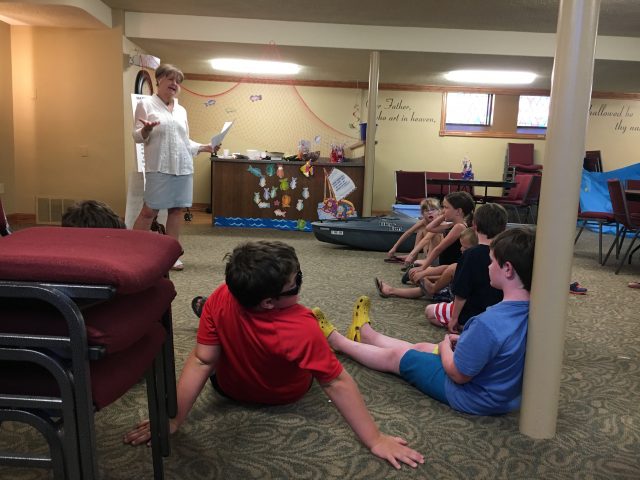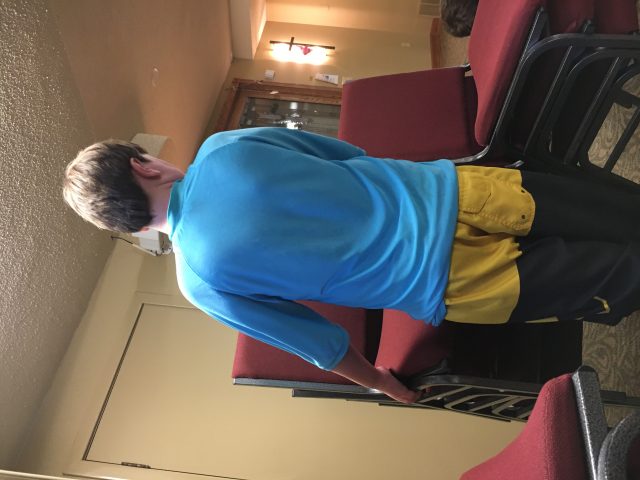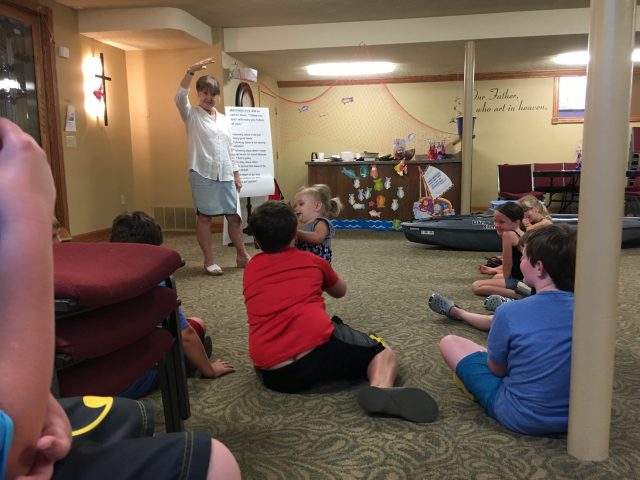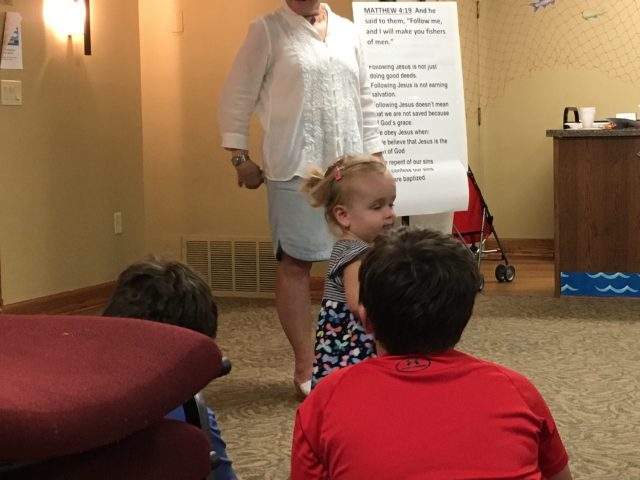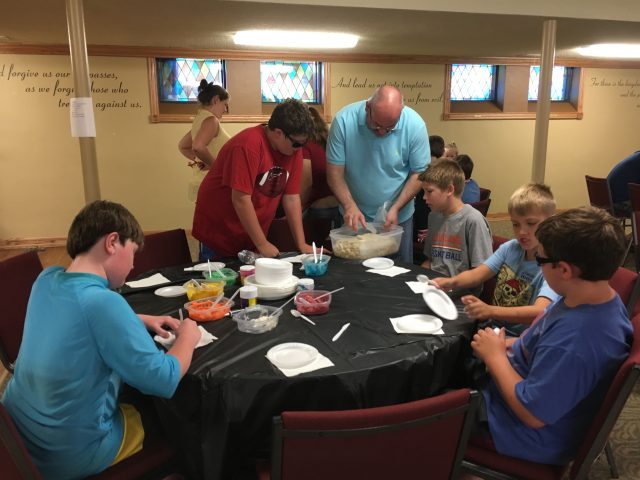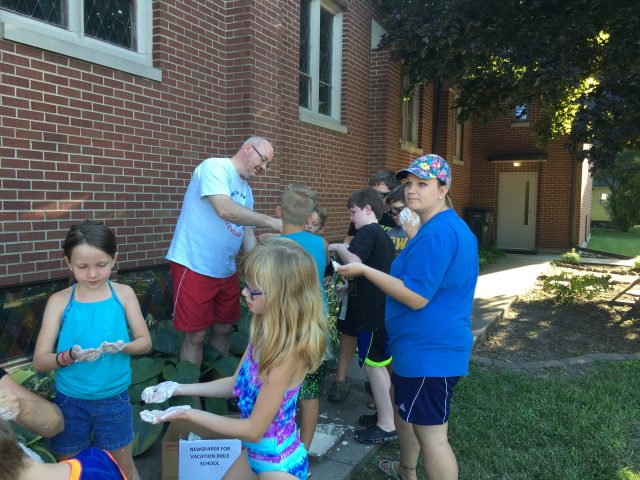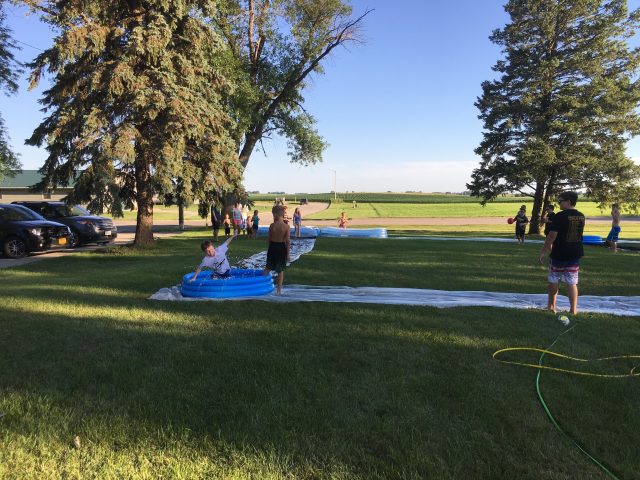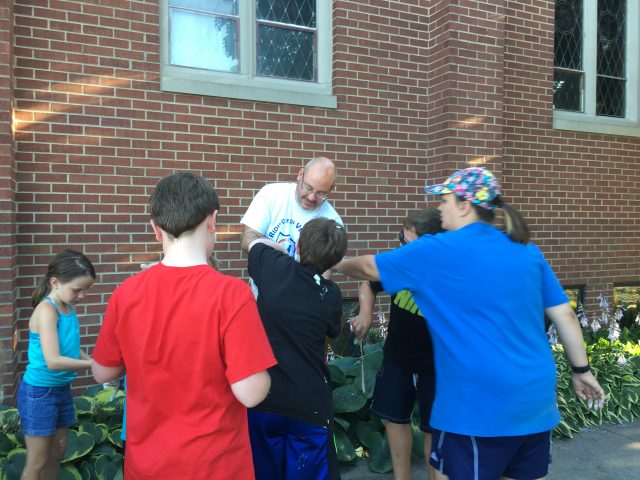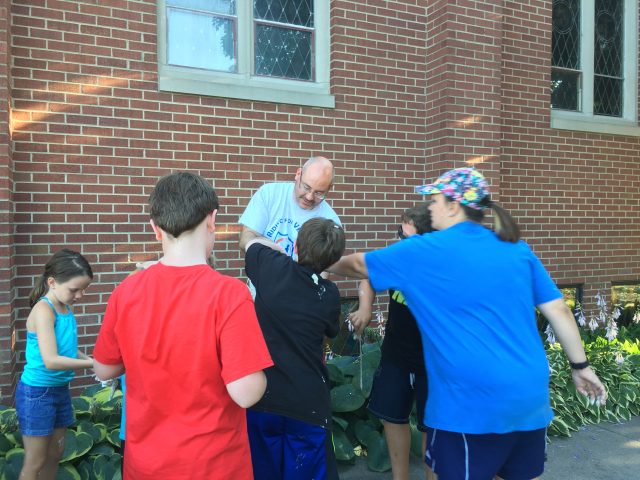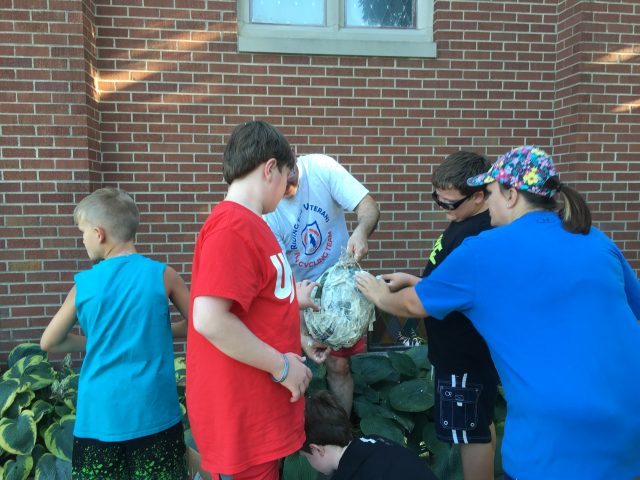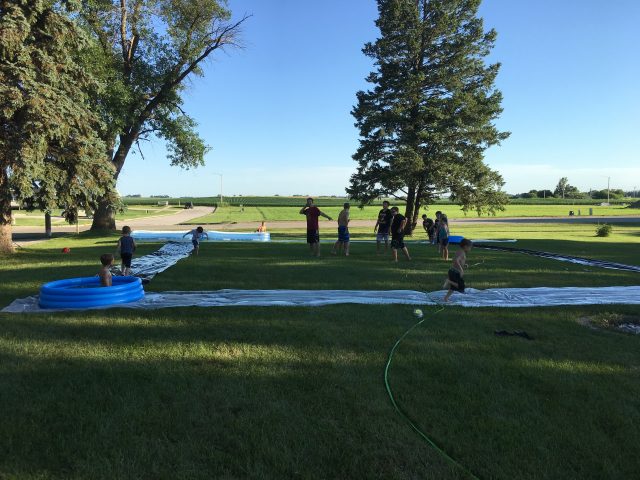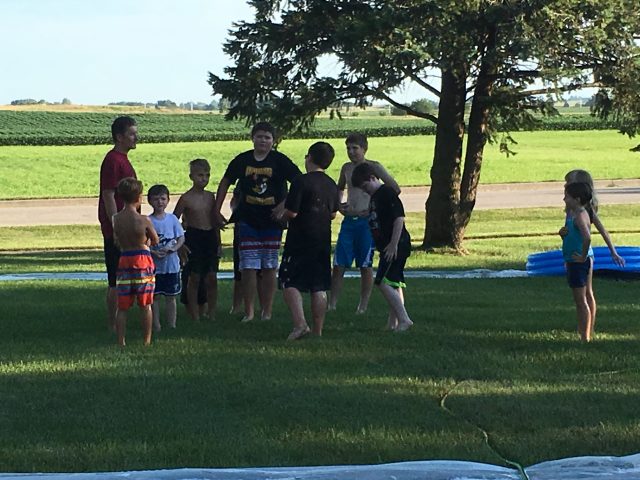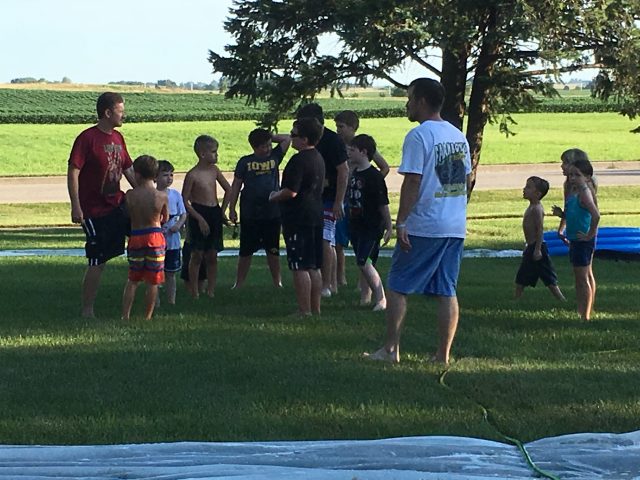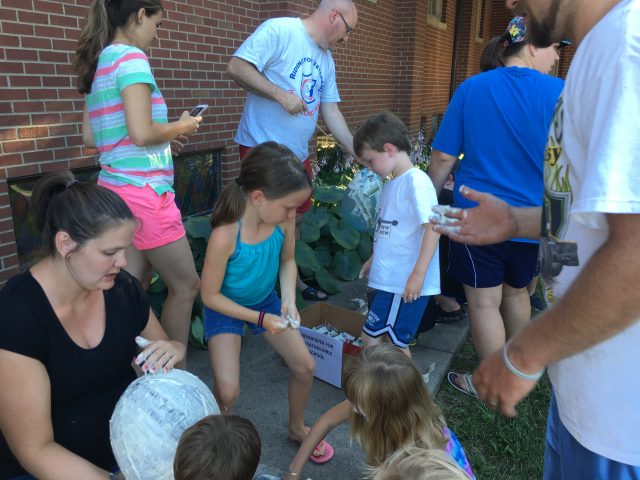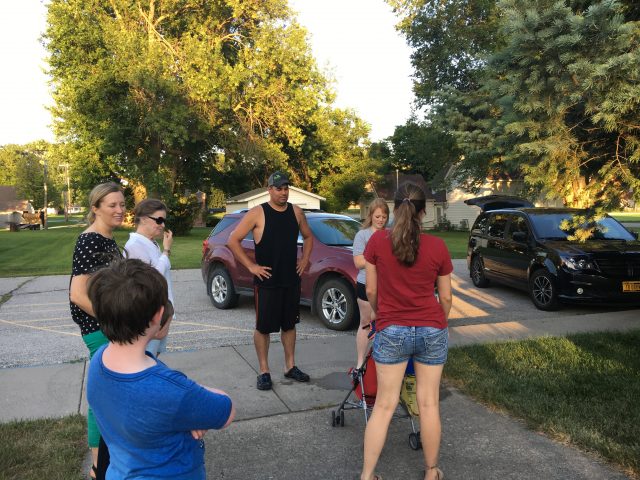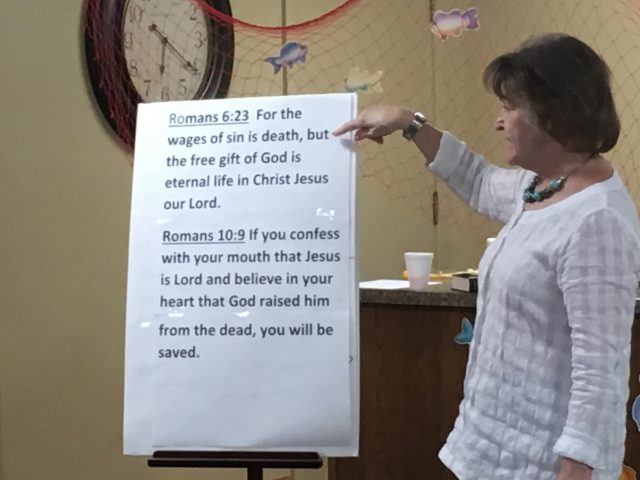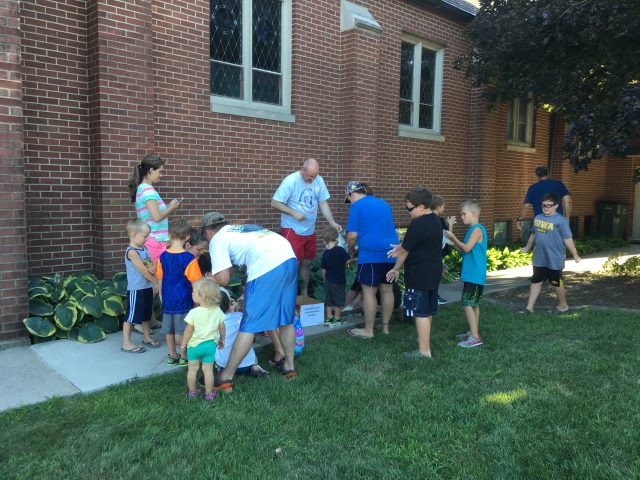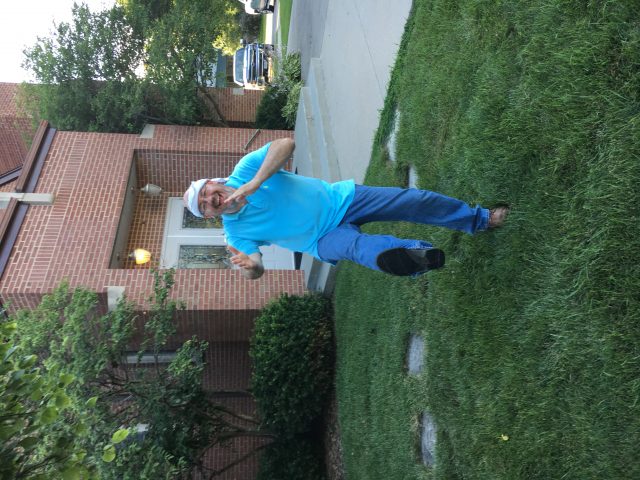Search
Sermon – Amazing Grace
In 1779 a London pastor named John Newton wrote a hymn hymn that he titled Amazing Grace, which today is considered by many to be the most loved hymn in all of history.
The hymn begins with the words, “Amazing grace! How sweet the sound—that saved a wretch like me!”
“A wretch like me”—to many today, this word seems a bit dramatic. When’s the last time you’ve heard anyone refer to themselves as a wretch? The word is so unpopular that some of you may not even know what it means. The dictionary defines the word wretch as “an unfortunate or unhappy person or a despicable or contemptible person. Synonyms are scoundrel, villain, rogue, swine, criminal, good-for-nothing, …”
For John Newton, however, the word wretch was, if anything, not strong enough. Many of you probably know at least part of Newton’s story; he was the only child of a sea captain father and a Christian mother who taught him the Bible at an early age. Unfortunately, she died when Newton was seven; he spent the next two years in boarding school before his father remarried and took him to live with his new stepmother. At age 11, he went to sea with his father, making six voyages with him before his father retired, at which time the young John Newton signed on with a merchant ship. At age 19, on his way to visit friends, Newton was kidnapped and forced into service on a Royal Navy ship—he did not do well with navy discipline; he tried to desert but was captured and publicly flogged.
Newton was so broken by this event that he considered suicide by throwing himself overboard. But eventually he recovered physically and mentally and convinced his superiors to exchange him into service on a slave ship. The ship carried goods to Africa, where they were traded for slaves, who would then be taken to colonies in the Caribbean and North America.
But the rebellious young Newton didn’t get along well with the rest of the crew so they left him in West Africa with a slave trader who brutally abused him. Finally Newton was rescued by a sea captain who knew his father. It was on his return trip to England that Newton experienced a spiritual conversion, what he later referred to as his “great deliverance.”
He wrote in his journal that one night there was a violent storm that tossed the ship around. As the ship began to break apart, the situation seemed hopeless; certain that the ship was sinking, John remembered the words of Proverbs 1:26, “I will laugh at your calamity; I will mock when terror strikes you.” He cried out, “Lord, have mercy on us.” And at that moment, the cargo shifted, stopping up the hole, and the ship drifted to safety.
For the rest of his life, John Newton remembered that day, May 10, 1748, as the date of his conversion although he said it was only much later that he could consider himself to be a believer in the full sense of the word.
Prior to that night, he had lived with complete moral abandon. He later wrote, “I sinned with a high hand and made it my study to tempt and seduce others to do the same.”
Newton continued in the slave trade for a time after his conversion although from that point on, he was careful to be sure that the slaves under his care were treated humanely.
At the age of 30, Newton left the sea for an office job and, now married and settled in England, he began to hold Bible studies in his home. He came to know the great preacher and founder of Methodism, George Whitefield and the Wesley brothers. As he grew in faith, Newton became increasingly disgusted with the slave trade—and also with the part that he had played in it. Eventually he was ordained and spent the rest of his life serving as pastor of a London church. It was there that he met William Wilberforce, who would one day become a leader in the campaign for the abolition of slavery.
Newton continued to preach until the last year of his life, despite the fact that he was blind by that time. He never forgot who he once had been and what God had done for him. Not long before his death at the age of 82, Newton preached, “My memory is nearly gone, but I remember two things: that I am a great sinner and that Christ is a great Savior!”
When he died in 1807, this worst of sinners, this wretched man, was secure in his faith that amazing grace would lead him home.
Until his conversion, John Newton was nothing but trouble. Nobody liked him—nobody wanted to be around him. Every ship he signed on to was happy to get rid of him. But on the night of his conversion, his identity as a sinful rebel was replaced by a new identity—now John Newton was a child of God. He understood the words Paul wrote to the Ephesian church: “At one time you were in darkness, but now you are light in the Lord” (Ephesians 5:8).
I wonder how many people had given up on him—had decided that he was good for nothing, beyond hope. I wonder how long it took some of them to believe that he really had changed. How long did he have to “walk as a child of the light” before those who knew him before stopped thinking that it was an act, that he was doing what he did because of what he hoped to gain.
John Newton, after that night on a sinking ship, knew that he was a wretch in need of a Savior—and he knew that he had been saved only by the amazing grace of God.
In John’s gospel, we’re still in the midst of the “festival of light,” this celebration that was intended to remind them of their deliverance from slavery as God led them out of Egypt into the Promised Land. Israel was led out of Egypt by the presence of the Lord in the pillar of fire, a pillar of great light (Exodus 13:21; Nehemiah 9:12; Psalm 78:14). Now Jesus is saying that those who follow Him “will never walk in darkness, but will have the light of life” (John 8:12). He’s promising a salvation much greater than a temporary deliverance from an earthly enemy—He’s promising salvation from the forces of rebellion against God that lie behind every form of evil in the world. And this deliverance is not just a rescue from darkness and a brief glimpse of the light—it’s an ongoing life apart from darkness through possession of the light of life.
And then Jesus declares that He is the divine presence, the light, come into the world to save not just the Jews, but all people everywhere, from the bondage of sin. He’s promising salvation to wretches like you and me. He says in v8:8, “Whoever follows me will not walk in darkness, but will have the light of life.”
The world lies in darkness and death because through its rebellion against God, it has broken contact with the one source of light and life. And now here is Jesus offering this light and life to all who will believe in Him and follow Him. He’s offering freedom from our bondage to sin—and many of them don’t even seem to be able to hear Him.
They have no idea that they’re wretches in need of salvation. In fact, many of them have decided that Jesus is the wretch. They look at Him and see only what they think they know about Him. Back in 1:45-46, when Philip told Nathanael that he had found “him of whom Moses in the Law and also the prophets wrote, … Nathanael said …, ‘Can anything good come out of Nazareth?’”
The Jews listening to Jesus in chapter 8 clearly know that He’s from Nazareth, a town that apparently had a very bad reputation. In 8:41, they say, “We were not born of sexual immorality.” Everyone knew that Mary was pregnant before the wedding—and everyone thought they knew what this meant.
Many of them thought Jesus was the wretch who needed help—others, however, were listening to what He said and were beginning to believe, or at least to hope, that He was speaking truth.
Into the midst of this, we have the healing of the blind man. One of the signs of the messianic age is the receiving of sight by the blind. Everyone knew the OT prophecies:
Isaiah 29:18 “In that day the deaf shall hear the words of a book, and out of their gloom and darkness the eyes of the blind shall see.”
Isaiah 35:5 “Then the eyes of the blind shall be opened, and the ears of the deaf unstopped; then shall the lame man leap like a deer, and the tongue of the mute sing for joy.”
And now Jesus heals a blind man. Jesus is the only one in all of Scripture who was able to bring sight to the blind. But the response of many to this miraculous event is denial. Jesus heals a man who has been blind from birth, a man who looks exactly the same as he did before Jesus healed him—and they’re arguing about who he is.
Jesus wants them to recognize their own blindness. He wants them to see how ridiculous they are—but they’re so caught up in their own ideas about who the Messiah should be, where He should come from, what He should look like, that they can’t even see Him standing right in front of them.
They’re so convinced of their own rightness, their own lack of wretchedness, that they think they don’t need a Savior.
They’re not the ones in bondage to sin—even Jesus’ disciples want to know: “Who sinned? This man or his parents, that he was born blind?”
Jesus’ response makes it clear that we shouldn’t be concerned about assigning blame. He knows that we’re all wretches in need of the amazing grace of God. And so Jesus said, “It was not that this man sinned, or his parents, but that the works of God must be displayed in him. We must work the works of him who sent me” (v 3-4).
“We must work the works…” Jesus will lead the way, but we must follow Him in the work of bringing sight to the blind. The existence of human suffering and blindness is a call to work, not simply to wonder why. Jesus in His response is anticipating the coming ages when the risen Lord will be at work in the world through His people.
In chapter 8:12, Jesus declares that He is the light of the world. Now in chapter 9, we see Jesus demonstrate this by literally bringing light to this blind man. Still, many of those present fail to see. The Pharisees question the man and his parents and then bring the man back for more questioning, a pattern very much like that which occurred when Jesus earlier healed the man at the pool of Bethesda. Yet in spite of the man’s testimony, in spite of the fact that previously he was blind and now he could see, all they could see was their conviction that he was a sinner. And so in the end, when the man said, “’Never since the world began has it been heard that anyone opened the eyes of a man born blind. If this man were not from God, he could do nothing.’ They answered him, ‘You were born in utter sin, and would you teach us?’” (9:32-33).
They had God’s word going all the way back to Job that we can never understand why God allows bad things to happen—but still, they refused to give up their belief that sickness was the result of sin. That the man was blind because he deserved to be blind. Because if they were to let go of their belief that sin always resulted in sickness or some other visible punishment, then they would have to consider that they, too, might be sinners in need of a Savior.
Instead they focused on the fact that Jesus healed on the Sabbath–again. No one says, “Hallelujah! Praise God that this man who was blind can now see!”
How often does this happen in our world today? We have only to turn on the evening new to hear politicians criticize the opposing party even when they do things that move the country forward—criticize them either because it wasn’t done the right way or it didn’t go far enough.
How often does this happen even in the church? How often does something good happen but still we hear complaints that “it wasn’t done the right way.”
The Jews in our gospel were so focused on the fact that Jesus wasn’t doing things the way they thought things should be done that they couldn’t even see God at work—couldn’t see Him standing right in front of them.
They were wretches in need of a Savior just as much as the blind man, just as much as John Newton, just as much as you and me—but to acknowledge this would require them to change their identity.
How about you? Do you know that you’re a wretch in need of a Savior? A wretch in need of the amazing grace that comes only through Jesus Christ?
For the Pharisees, Jesus wasn’t following Moses—their understanding of Moses—so they were certain He could not be from God. These were men who revered the Scriptures and were zealots for pious behavior and practices, such as prayer and fasting. They were often in worship and gave generously and sacrificially to God’s work. Yet they were among the principal instruments used by Satan to hang Jesus on the cross.
They are not an extinct breed.
Whenever we’re unable to rejoice in the saving and renewing of lives simply because the instrument used wasn’t someone that we think is living the way they should, whenever we find that we have lost our sense of joy in the grace of God by which alone we know Him and live before Him, we need to beware. The only security against becoming a Pharisee is grace, which is perhaps the reason the Lord may from time to time allow us to stumble in our Christian walk so that we may have an opportunity to rediscover it.
Luther: “There is no cure for spiritual pride like a little overeating, oversleeping or overdrinking.”
Luther knew that all of us are sinners—wretches in need of salvation. He also understood that we have a tendency to think that we’re better than others, often on the basis of how we look on the outside. Surely people who have good health and good jobs and a nice home and food to eat and children who are doing the right things are being blessed by God for their own goodness—have you ever thought this?
And if we believe deep in our hearts that this is true, then just as surely, people who don’t have their act together on the outside—maybe their kids are in trouble all the time, maybe their house is in need of repair or their yard is a mess, maybe they don’t seem to have any regular employment—surely they’re just reaping the results of their own bad choices and behavior. Right?
Surely if they’re kicked off the ship because nobody likes them, surely if they’re born blind, that means that God doesn’t like them any better than I do and they deserve everything that’s happening to them—right?
Brothers and sisters in Christ, let’s search our own hearts and minds and souls this morning and ask ourselves: have we ever thought this way?
Because Jesus, when His own disciples indicated that this is the way they thought, said, “It is not that this man sinned, or his parents, but that the works of God might be displayed in him.”
If there are people around you who are struggling, who are suffering, who need help, Jesus is saying, they’re there so that you can help them. So that you can display the works of God in them.
God allowed John Newton to come near to death in order to get His attention, to make him realize that he was a wretch in need of grace. Jesus came into the world to show us that every single one of us is a wretch in need of His amazing grace. And He came into the world to make that grace freely available to any of us who would recognize our own wretchedness and believe in Him. Follow Him.
Will you accept what He offers—even when it makes no sense, even when you can’t understand it? Or will you cling stubbornly to your own wrong ideas, preferring the familiar darkness to giving up what you think you can’t live without?
Although John Newton, at the end of his life, was physically blind and unable to see, spiritually his eyes had been opened years earlier.
The choice is yours.
Let us pray.
Sermon – Shining Light
John 7:37-43
John 8:1-12
These central chapters of John’s gospel aren’t popular in the American church. In fact, except for the first two verses that I read (7:37-39), nothing of these chapters is even included in the lectionary.
Perhaps that’s because Jesus’ message in these chapters is, in many ways, very contrary to the message of the American church. For many of us in this country, bigger is better when it comes to the church—or almost anything else. We look with envy at churches with sanctuaries that seat thousands, that have staffed nurseries and coffee shops, sometimes even a café. Churches that offer multiple services over the course of a weekend, services that often include special effects and a really good band.
Churches that have preachers—but not pastors. Another reason that we don’t like to talk about this part of Jesus’ gospel. Because Jesus didn’t call His apostles to be preachers—He called them to be pastors. To be shepherds—and no one can shepherd thousands of people. No one can shepherd people whose names they don’t know. Whose faces they may not even recognize.
But when we read John’s gospel, especially these chapters, we discover that Jesus’ model of ministry looks very different from our American model. We discover that the One who calls us to follow Him, the One who tells us to do what He did, spent the majority of his ministry with twelve men. After three years of full-time ministry, the Son of God, when He left this earth, had only about 120 people who were actually following Him, who were actually doing what He told them to do.
Interestingly enough, studies have shown that congregations of about this size are often the healthiest and most effective.
So while we dream of churches filled with thousands of people, our greatest example in ministry was known for turning away thousands of people. Whenever the crowd got really big, He’d say something like, “Unless you eat the flesh of the Son of Man and drink his blood, you have no life in you” (John 6:53).
Not exactly the greatest church-growth plan. It was at the end of that speech, that John tells us that all the crowds were gone and only twelve men remained. Was Jesus discouraged? Did He call a meeting to figure out what went wrong? How to get those people back? No. Because clearly Jesus wasn’t interested in just increasing attendance. He was calling people to new life, to a life that was totally contrary to the first century Jewish Dream and that is totally contrary to the 21st century American Dream. A life that would involved up our cross and following Him—following Him even when everyone else told us we were crazy to do so. Even when others threatened to kill us for doing so. He was asking far more than the vast majority of people listening to Him were willing to accept, and He seemed to be perfectly OK with that.
David Platt, once hailed as “the youngest megachurch pastor in history,” wrote his book Radical in response to this problem. Because when He studied the gospels, and especially this part of John’s gospel, he says that “I realized I was on a collision course with an American church culture where success is defined by bigger crowds, bigger budgets, and bigger buildings. I was now confronted with a startling reality: Jesus actually spurned the things that my church culture said were most important.”
He goes on to write: “You and I can choose to continue with business as usual in the Christian life and in the church as a whole, enjoying success based on the standards defined by the culture around us. Or we can take an honest look at the Jesus of the Bible and dare to ask what the consequences might be if we really believed Him and really obeyed Him.”
Because this is what Jesus is telling us: We need to believe in Him and then we need to obey Him.
“Jesus said to the Jews, ‘You are from below; I am from above. You are of this world; I am not of this world. I told you that you would die in your sins, for unless you believe that I am he you will die in your sins’” (John 8:23-24).
John 8:51 “Truly, truly, I say to you, if anyone keeps my word, he will never see death.”
John 8:53-55 “’… Who do you make yourself out to be?’ Jesus answered, ‘if I glorify myself, my glory is nothing. It is my Father who glorifies me, of whom you say, ‘He is our God.’ But you have not known him. I know him. If I were to say that I do not know him, I would be a liar like you, but I do know him and I keep his word.’”
Jesus makes no effort to soften His message. “I’m the Son of God. Unless you believe in me, you’re going to die. I know God—you don’t. And if I agreed with what you’re saying, I’d be a liar like you.”
The Jews thought they knew God. They were, after all, the chosen people. But over the centuries, they’d turned God into a list of rules. A list of rules that allowed those who kept them to believe that they were better than those who didn’t. That allowed them to believe that if they had a better life than others, if they had better robes and better homes and better food, that was because God was happy with them.
Of course, the flip side was also true. If they were sick or struggling, that could only mean that God wasn’t happy with them.
The had created a fake God—a god who allowed them to live the way they wanted to live, a god who looked just like them.
The European church in the middle ages did the same thing, creating their own fake god—it was Martin Luther’s call to the church to turn back to the God of the Bible that caused the beginning of the Protestant Reformation of the 16th century.
So it’s not really so strange that the American church began to create its own fake god; while the movement away from the God of the Bible actually began about 200 years ago in this country, it really picked up steam in the middle of the last century. Following World War II, soldiers came home and got married and had children. Churches everywhere grew; families moved to the new suburban communities that were popping up everywhere and new churches were built. The 1950’s were the heyday of the American church. Virtually all of church growth came by way of the baby boom of that era.
But the God that people were hearing about on Sunday morning was often not the God of the Bible—He was often a god who looked a lot more like the Jewish God, a god who often was mostly about keeping his rules.
When people talked about God, rarely did anyone ask, “Which God?” Because, unlike our culture today, it was simply assumed that we all knew who God was—the question was did you or didn’t you believe in that God? We didn’t all know the one true God—in fact, it’s likely that most of us didn’t—but we all understood God pretty much in the same way. And for many of us, that God was a distant, remote God who created the world, a God who may have occasionally looked down to see what a mess we were making of it. Looked down with a frown on His face—but He never got too involved in the world, except occasionally to punish bad people and eventually to take good people away to be with Him forever in a place called heaven.
That God wanted us to be good—He was more interested in making good law-abiding citizens than He was in calling us to believe in Him and to obey Him. He wanted us to obey our leaders. And sadly, many of us never even recognized what had happened.
I know I didn’t. When I look back on my education in a Catholic school and on my children’s Sunday School lessons, I realize that there was a lot of teaching on ethics and little teaching on Scripture. Bibles were handed out but we almost never opened them; we were never encouraged to actually read them.
And the people who were in charge of putting together the Scripture passages that would make up what we call the Lectionary, the passages that many churches read and focus their preaching on every Sunday, began to remove the difficult and challenging parts. The parts like these central passages in John’s gospel. Because our American lifestyle was more and more about affluence and comfort, about consuming all the great things that were filling all the new shopping malls, about enjoying life.
And nobody wanted to stand in the pulpit and quote Jesus saying, “Unless you eat the flesh of the Son of Man and drink his blood, you have no life in you.” Nobody wanted to say, “Unless you believe that I am he you will die in your sins.” After all, isn’t that a little harsh? Can’t we just stick with the good shepherd Jesus, the Jesus who promises to come back for us, the Jesus who loves us?
About 25 years ago, a new reformation movement began in this country, a movement that 18 years ago, led a small group of churches to begin a new association, the association that we joined 11 years ago, Lutheran Congregations in Mission for Christ. An association with the goal of turning back to Scripture, of becoming the church that Jesus calls us to be, a church that is committed to living the way He called us to live. A group that at its very first meeting, with only 24 congregations, asked the question: “Do we believe in Jesus enough to obey Him and to follow Him wherever He leads, even when the crowds in our culture—and maybe even in our churches—turn the other way?’
And those 24 congregations voted “yes”—unanimously. Criticism from the rest of the church was strong. They called us stupid, they said that we were destroying our congregations, that the world had changed too much to think that people would really be willing to follow Jesus in the way that He calls us to do in the gospels. The church, they said, was about social justice—if we could make people’s lives better by taking care of them, shouldn’t we do that? And if they were offended by hearing about Jesus, surely it was OK to just not talk about Him.
But in the gospels, the main issue with Jesus was always God. John 7:16-18 “Jesus answered them, ‘My teaching is not mine, but his who sent me. If anyone’s will is to do God’s will, he will know whether the teaching is from God or whether I am speaking on my own authority. The one who speaks on his own authority seeks his own glory, but the one who seeks the glory of him who sent him is true, and in him there is no falsehood.”
Jesus had compassion, He loved those who were downtrodden, those who were sick, those who were suffering—but always, He did what He did for the glory of God. When we make other things our main focus—abortion, sex slavery, racism, persecution, sexual immorality, whatever, we remove the focus on God.
And Jesus didn’t come to make the world a little better. He came to bring a new creation—He came to bring the Kingdom of God. He came to say, “Come with me, get on board. Right here and right now. Follow me and you can have new life, not someday when you die but right now—today!”
Jesus’ message was that believing in the living God, the God who has fulfilled His promises in Jesus, has done what we needed, finding us, saving us, giving us new life in His Son, Jesus. With Jesus, a great door has swung open in the cosmos that can never again be shut.
It’s the door to the prison where we have been chained up in our sin.
And in the story of the woman caught up in adultery, we see this God in action. We see who He really is and what He really cares about. The woman makes no effort to deny her crime—she has clearly broken God’s commandments. But what Jesus focuses on isn’t her sin; He wants every single person there to recognize that they’re all sinners. That it’s not just the woman who needs a Savior—every one of them needs salvation.
At the same time, He’s not saying that sin is OK—He tells the crowd, “Let him who is without sin among you be the first to throw a stone at her.” He tells the woman “go and sin no more.” Sin isn’t OK with God, but He knows that every single one of us is guilty of sin. And it is for this reason that He sent Jesus. Jesus who said to them, “I am the light of the world. Whoever follows me will not walk in darkness, but will have the light of life” (John 8:12).
The hot button issues of Jesus’ day were adultery, breaking the Sabbath laws, racism, tithing. But Jesus didn’t focus on these issues—He focused on glorifying God. The gospel doesn’t just confront social issues, it actually creates confrontation with the culture around us. But Jesus knew that if we would just believe in Him and follow Him, these issues would begin to fade away.
How would we act if we fixed our gaze on that light: on the holiness, love, goodness, truth, justice, authority, and mercy of God revealed in the gospel—revealed in the words and the actions of Jesus in John?
Like the first century Jews, much of our difficulty as seeking Christians stems from our unwillingness to take God as He is and adjust our lives accordingly. We insisted on trying to modify Him and bring Him nearer to our own image. We convinced ourselves that He was happy to accept our pet sins, that He just wanted us to be happy. But it is only by accepting God as He is and learning to love Him for what He is that we discover that He is our source of unspeakable joy. Some of the best moments we ever experience will be those spend in reverent admiration of the Father, Son and Holy Spirit.
Every soul belongs to God and exists by His pleasure. God being who and what He is, and we being who and what we are, the only thinkable relation between us is one of full Lordship on His part and complete submission on ours. We owe Him every honor that is in our power to give Him. Our everlasting grief lies in giving Him anything less.
And yet the moment we make up our minds to go on with this determination to exalt God above all, we step out of the world’s parade. Because the closer we draw to God, the more we will separate ourselves from the world. We acquire a new viewpoint, a new power begins to surprise us with its upsurgings and outgoings.
The break with the world will become obvious, for the world of fallen men does not honor God. Millions call themselves by His name and pay some token respect to Him, but a simple test will show how little He is really honored among them. Simply let the average man be forced into making a choice between God and money, between God and men, between God and personal ambition, God and self, God and human love, and God will take second place every time.
But let the seeking man reach a place where life and lips join to say continually, “Be thou exalted”—and mean it—and a thousand minor problems will be solved at once.
Jesus on Calvary brought the pain and tears of all the years together. The sorrow of heaven joined with the anguish of earth; the forgiving love stored up in God’s future was poured out into the present, the voices that echo in a million human hearts, crying for justice, longing for spirituality, eager for relationship and beauty, drew themselves together into a final scream of desolation.
The death of Jesus of Nazareth as the King of the Jews, the bearer of Israel’s destiny, the fulfillment of God’s promises to His people of old, is either the most stupid, senseless waste and misunderstanding the world has ever seen, or it is the fulcrum around which world history turns.
Who do you say that He is? And are you living according to what you say?
As we continue our congregational discussion on who we are and where we are going as a congregation, let’s not get caught up in things that matter not at all in the light of eternity. What we really need to decide if whether we’re willing to follow Jesus wherever He calls us—if we’re willing to listen when He says, “Crucify yourself. Put aside all self-preservation in order to live for the glory of God, no matter what that means for you in the world around you.”
Sermon – What Must We Do (Communion)
Confirmation day—for three years, we’ve been learning about Jesus, learning what it means to be a follower of Jesus, to be a part of His Body. We’ve studied the catechism and the Bible and we’re spent a lot of time talking about how to live as a follower of Jesus.
But really, when it comes down to it, we discover what’s most important in the sixth chapter of John’s gospel.
John 6:28-29 “They said to Jesus, ‘What must we do, to be doing the words of God?’ Jesus answered them, ‘This is the work of God, that you believe in him whom he has sent.’”
What must we do? The crowd surrounding Jesus on that day had come because they wanted more of the free bread that they had received the day before when Jesus provided an all-you-can eat meal for 5000 men from five barley loaves and two fish.
They want to know, “What must we do to get more free food?”
John 6:35 “Jesus said to them, ‘I am the bread of life; whoever comes to me shall not hunger, and whoever believes in me shall never thirst.’”
They want to know, “What must we do to get more free food?”
They’re asking the wrong question. What they should be asking, Jesus says, is, “What must we do to get the bread of life?”
John 6:47-59
Jesus said: “’Truly, truly, I say to you, whoever believes has eternal life. I am the bread of life. Your fathers ate the manna in the wilderness, and they died. This is the bread that comes down from heaven, so that one may eat of it and not die. I am the living bread that came down from heaven. If anyone eats of this bread, he will live forever. And the bread that I will give for the life of the world is my flesh.’ The Jews then disputed among themselves, saying, ‘How can this man give us his flesh to eat?’ So Jesus said to them, ‘Truly, truly, I say to you, unless you eat the flesh of the Son of Man and drink his blood, you have no life in you. Whoever feeds on my flesh and drinks my blood has eternal life, and I will raise him up on the last day. For my flesh is true food, and my blood is true drink. Whoever feeds on my flesh and drinks my blood abides in me, and I in him. As the living Father sent me, and I live because of the Father, so whoever feeds on me, he also will live because of me. This is the bread that came down from heaven, not like the bread the fathers ate, and died. Whoever feeds on this bread will live forever.’ Jesus said these things in the synagogue, as he taught at Capernaum.”
Four times Jesus says that He is the bread of life.
This is a shocking thing to the Jews who are listening to Him. They immediately think of cannibalism, which both disgusted and horrified them. To eat human flesh or to consume any blood was totally forbidden under their law. Surely Jesus knew how shocked they would be.
We’re not shocked because we know the rest of the story. We understand that Jesus is talking about the sacrament of Holy Communion, the sacrament that the other gospels describe at the Last Supper, where Jesus blessed bread and wine, telling His disciples that the bread is His body and the wine His blood.
But the crowd listening to Jesus doesn’t know this—and Jesus makes no effort to explain. They’re horrified—and He knows it. Were it not for His words in v 37, “All that the Father gives me will come to me, and whoever comes to me I will never cast out,” we might almost think that He’s trying to drive them away. Certainly He’s once again putting them to the test.
They want to know, “What must we do to get more free food?” And Jesus is saying, “You’re asking the wrong question. You’re looking in the wrong direction.”
John’s gospel begins with the words: “In the beginning was the Word, and the Word was with God, and the Word was God. … All things were made through him, and without him was not anything made that was made.”
Nothing was made without Him. Not bread. Not water. Not human life.
We know that all inanimate objects are made from basic building blocks that we call atoms. And we know that all living things are made from basic building blocks that we call cells.
So John gives us the wedding at Cana, where Jesus transformed the ordinary water that was contained in six stone pots into fine wine. The water was changed, but the pots that held the water remained completely unchanged. Jesus rearranged the atoms that were water into atoms that were wine. The atoms that were the stone pots, however, He left unchanged.
Right from the very beginning of this gospel, John wants us to understand that we don’t need to wait until heaven to be changed—we can be transformed right here and right now. Because if Jesus could transform ordinary water into the best wine, surely He can also transform ordinary men and women into something new and better—into new creations.
Then Jesus meets with Nicodemus and talks about the need for new life, the need to be born again. Talks about it but doesn’t explain how it could happen. Then He meets a Samaritan woman and tells her about living water—living water that He says is available through Him.
Available to anyone who will worship the Father in Spirit and truth.
What must we do? We must worship the Father in Spirit and truth.
Then Jesus heals a man who’s been an invalid for 38 years, rearranging or repairing or changing the cells in His body. He walks on water, demonstrating His control over nature. And He feeds 5000 men by simply speaking over five small loaves and two fish, causing them to multiply into huge quantities of food.
Now the crowd has come back asking “What must we do?”
They’re asking for more bread, not recognizing that Jesus is the bread. They ask for a new miracle, not realizing that He is the miracle. Not realizing that the bread they received the day before was, like the Old Testament manna, simply a foretaste of the real bread from heaven. A sign pointing them toward the bread of life.
Over and over again, Jesus is showing them that the divine is now in their very midst. The One without whom nothing has ever been made is now speaking to them in the synagogue in Capernaum.
The incarnate Jesus is the supreme example of matter as spirit-bearing.
It’s more than they can comprehend—and so they refuse to listen. Jesus, the source of all life, is right there offering eternal life to the crowd. And all they can do is grumble—they’re hungry. They’re far more interested in their bodily welfare than they are in their spiritual welfare.
Jesus is telling them, and us, that whether we live in the first century or the twenty-first century, that what we need most isn’t what He can give us—it’s not food to eat or physical healing or more or better stuff. What we need most is Jesus Himself.
That’s what the Twelve learned when Jesus came to them on the water as the strong wind blew them around on the Sea of Galilee. Jesus came and they were safe—despite the fact that nothing is said about the wind ceasing.
Jesus is all we need—in every circumstance.
“What must we do?”
Jesus tells the crowd that they must eat His body and drink His blood. They must consume Him. They must take Jesus into their innermost being.
They don’t understand. They’re shocked and disgusted.
Perhaps what’s most shocking to us, however, are Jesus’ words, “Truly, truly, I say to you, unless you eat the flesh of the Son of Man and drink his blood, you have no life in you.”
“What must we do?”
Jesus seems to be saying that participation in the communion meal is not just a good thing to do—it’s essential for eternal life. And because the communion meal is shared as a part of worship in the church, it appears that He’s saying that it’s also necessary to be a part of the Body of Christ, the church.
Many of us like to think that we can be Christians independent of the church; we like to think that the sacraments are nice, they’re good things, but certainly not essential. But in this teaching by Jesus, as well as the teachings that we will find in the rest of this central section of John’s gospel, there is much emphasis placed on the need to be a part of the community of God’s people.
John 6:47 says, “Truly, truly, I say to you, whoever believes has eternal life.” Jesus is saying that faith is what’s necessary for eternal life.
John 6:51 says, “I am the living bread that comes down from heaven. If anyone eats of this bread, he will live forever.”
So apparently both faith and this eating and drinking are necessary for eternal life. It is belief, however, that is primary. It is only through faith that we can receive the benefits of the communion meal. God’s life is available in the sacrament because He promises to be present. We don’t make Him present by our faith. He’s present wherever and whenever people gather to receive Holy Communion. But if we don’t come to the communion table by faith, it may do us no good and might actually do us harm, as Paul tells the Corinthian church. He says that “whoever eats the bread or drinks the cup of the Lord in an unworthy manner will be guilty concerning the body and blood of the Lord. … That is why many of you are weak and ill, and some have died” (I Corinthians 11:27, 30).
What must we do?
Jesus is clearly saying that we must partake of the communion meal and Paul is saying that we must come properly prepared. Now in the very strictest sense of the word, very little is absolutely essential for our salvation, as demonstrated by the thief on the cross. All he had was faith in Jesus as King of the Jews and a desire to be with Him. So in this passage, Jesus is talking about that which is generally necessary. We are commanded to receive the body and blood of Jesus Christ in the bread and wine of the sacrament, but it is the communion alone, the indwelling, that is absolutely necessary—abiding in Jesus on the basis of His sacrificial death on the cross.
Like baptism.
The communion meal is a covenant. Through the shedding of the blood of Jesus, the sacrificial Passover Lamb, it is now possible for Jews and Greeks, rich and poor, men and women to know the glorious freedom of forgiveness and to have personal knowledge of God. Those who enter into this personal relationship, this covenant relationship, with our Lord Jesus at the same time enter into a covenant relationship with one another. Thus, the covenant community is established.
And we discover that eternal life is not a reward for doing good. Instead, it is a gift purchased by Jesus and offered to us—if we are willing to “feed on His flesh and drink His blood.”
The deacons and I have been having conversation about the communion meal; we’ve had some discussion with the church council also. We’re not sure everyone understands just what this sacrament is and what it means. And as we see in Paul’s letter to the Corinthians, it’s not just about participating—it’s about participating in a manner that is worthy.
But today, what I think is most important for you to take away with you is that Jesus commands us to regularly receive His flesh and blood in the bread and wine of the communion meal.
It’s not unusual for young people—and even their parents—to think of confirmation as graduation. To think that now you’ve done all that you need to do to be assured of salvation. But what Jesus is saying here is that to receive eternal life, we must literally consume Him, we must take Him into our very being. We must be in communion with Him and also with the rest of His Body.
I Corinthians 10:16-17 “The bread that we break, is it not a participation in the body of Christ? Because there is one bread, we who are many are one body, for we all partake of the one bread.”
Author and restaurant cook Sara Miles was raised as an atheist and had never had the slightest desire to become a Christian, or as she describes it, “a religious nut.” In her book, Take This Bread, she tells of her unexpected and “terribly inconvenient” conversion to Christianity. She writes:
“One early, cloudy morning, when I was forty-six, I walked into a church, ate a piece of bread, took a sip of wine. A routine Sunday activity for tens of millions of Americans—except that up until that moment I’d led a thoroughly secular life, at best indifferent to religion, more often appalled by its fundamentalist crusades. This was my first communion. It changed everything.
Eating Jesus, as I did that day to my great astonishment, led me against all my expectations to a faith I’d scorned. …. The mysterious sacrament turned out to be not as symbolic wafer but actual food—indeed, the bread of life.”
What must we do? We must take Jesus into our very being. We do this by reading His Word and allowing it to change us. We do this by taking the sacrament of Holy Communion. And we do this by being in communion with the rest of God’s people.
I WANT JESUS TO WALK WITH ME
Chapter 6 of John’s gospel brings us to the midpoint of Jesus’ ministry—and in many ways, an important turning point. There are three Passovers in John’s gospel: the first occurs just after the wedding at Cana; John tells us In 2:13 that “The Passover of the Jews was at hand, and Jesus went up to Jerusalem.” Went to Jerusalem where He immediately goes to the temple and drives out the merchants and their customers; when the Jews complained, He said, “Destroy this temple and in three days I will raise it up” (2:18). What He was really saying, although no one understood it at the time, was “You think you can get rid of me? Just try it and see what happens.”
John, in his gospel, describes people for the most part, as either Jews or disciples. A disciple is defined as a learner or student. So the disciples are the people who are willing to listen to Jesus, willing to learn from Him. The Jews are the people who are opposed to everything about Jesus.
Sometime before that first Passover, Jesus had begun to gather disciples. John only names a few of them: Peter and Andrew, John himself and his brother James, Philip and Nathanael. But the number is clearly growing. 2:23 says that “When he was in Jerusalem at the Passover Feast, many believed in his name.”
So now in chapter 6, a year has gone by; 6:4 tells us that “the Passover, the feast of the Jews, was at hand.” The third Passover will find Jesus once again in Jerusalem, this time sharing His final Passover meal with His disciples just before He is arrested. The following day He will be hung on the cross.
But for this second Passover, Jesus stays in Galilee. He has only one year left in this world and there’s much to be done. It’s time to get serious. It’s time to make sure that His followers know what it really means to be His disciple. Matthew, Mark and Luke all talk about the need for followers of Jesus to take up their cross. John doesn’t mention this—he just gives us chapter 6.
Everyone seems to have an opinion about Jesus—those described as “the Jews” hate Jesus. He’s threatening their authority, He’s ignoring their rules—and they’re disturbed by the fact that the crowds love Him. Those described as “disciples” want to be with them “because they saw the signs that he was doing on the sick” (6:2). So Jesus decides that it’s time to test His followers.
The tests are hard—so hard that while chapter 6 begins with “a large crowd” following Him, by the end of the chapter, John tells us that “many of his disciples turned back and no longer walked with him” (6:66). Jesus had managed to preach this crowd down from “many” to twelve.
So this huge crowd follows Jesus “to the other side of the Sea of Galilee” (6:1) and they’re hungry. Jesus tests Philip by asking him where they can buy bread. Philip fails the test—he says that to feed all these people is impossible. The other gospels tell us that the disciples just wanted Jesus to send the crowd away.
Jesus doesn’t do that. Instead, He tells Philip and Andrew to have the people sit down and after giving thanks, Jesus passes out bread and fish to everyone. And then He tells His disciples to “gather up the leftover fragments, that nothing may be lost” (6:12).
If you’re like me, you often imagine this story as being kind of idyllic. Everyone’s sitting on the grass in this huge meadow on the side of a mountain overlooking the sea enjoying a picnic lunch.
But there are 5000 men here, along with women and children, so a certain amount of chaos is unavoidable. Children are running around, people are hungry and maybe even impatient. It would take quite a bit of time for Jesus to personally hand out the food to this many people. And that’s what John says He does—there’s no buffet line where they go through and help themselves. Jesus is never in a hurry.
Jesus serves the meal—and then He tells His disciples to gather up the leftovers. There are probably 10,000 – 15000 people present; let’s say 12,000, which means that each one of the Twelve would have to gather up leftovers from 1000 people. We read that “they gathered them up and filled twelve baskets with fragments from the five barley loaves left by those who had eaten” (6:13) and are amazed at the fact that the leftovers are more than what they started with. But to gather up enough leftovers from 1000 people to fill a basket, even a big basket, would involve lots of gathering of very small bits of bread. It would have been a lot of work.
The crowd was really happy to get this free lunch. So happy that they wanted to make Jesus their king. So “Jesus withdrew again to the mountain by himself” (v 6:15).
This day isn’t going at all the way the Twelve had expected it to go. The other gospels tell us the plan had been for Jesus and His disciples to get away together, to rest, to relax. But then the crowd showed up and everything changed.
And now Jesus goes up the mountain by Himself and the crowd leaves. The disciples are left by themselves.
It’s not hard to imagine the conversation. Being with Jesus had started out great—they’d been right there with Him as He healed the sick; they heard Him tell the Jews that He was the Son of God—and they believed Him.
But gathering up the leftovers after lunch wasn’t exactly what they had in mind when signed up to be with Jesus. Like the rest of the crowd, they wanted Him to be king—they wanted to rule with Him. They wanted other people to wait on them.
The gospels are pretty clear that Jesus calls all of us to be servants—even those in leadership positions. Maybe especially those in leadership. And many of us think of ourselves as being pretty good at serving. Because we can be—as long as we get to decide when and where and how we’ll serve.
But the real test for us is how willing we are to serve when what we’re called to do something that we don’t want to do. When we’re called to serve at a time that’s inconvenient for us or when we had something else planned. When we’re called to serve someone that we don’t really want to serve.
Has that ever happened to you? It’s happened to me lots of times. Sometimes at church. Sometimes at home with my family. And it’s these times when we’re called to serve when we didn’t volunteer or when it wasn’t our idea or our plan that tests how well we’re following Jesus. Can we serve cheerfully, with a good attitude? Or do we do it—but make sure everyone knows that we don’t really want to be doing it, that we are not happy? Or do we just refuse—and tell ourselves that it’s OK because nobody should expect us to just change all our plans for them. Not even Jesus. Nobody should expect us to put Jesus’ plans ahead of our own. And we can be pretty good at convincing ourselves that Jesus never really called us to do any of those things that we don’t want to do.
So I think it’s pretty safe to assume that Jesus’ inner circle, the twelve disciples who have been with Him from the start, aren’t very happy. And when Jesus “withdrew again to the mountain by himself” (v 15), it doesn’t say that He asked the disciples to come with Him.
It just says that Jesus left. Went up the mountain and left them behind.
It was another test.
Jesus leaves and then John tells us in 6:16-17 that “When evening came, his disciples went down to the sea, got into a boat and started across the sea to Capernaum.” Where are they going? Why are they going? What’s going on? Later, in v 22 John tells us that “there had been only one boat and Jesus had not entered the boat with his disciples, but … his disciples had gone away alone.”
Now we know that Jesus can walk on water—we know that that’s exactly what He’ll do. But when the disciples get in that boat, they don’t know that. So apparently they just abandoned Jesus on the far side of the Sea of Galilee and head back to Capernaum, which is where they all live.
Did they get impatient? Were they tired of waiting for Jesus to come down the mountain? Are they irritated or offended that He didn’t invite them to go with Him? We know from other gospel accounts that Jesus is praying—He’s abiding in the Father. Are the disciples thinking, “Enough of this praying—we need to do something”? Or are they just tired and want to go home? After all, it’s been a long day. Picking up crumbs from among thousands of people is a lot of work.
Could there maybe even have been a little bit of, “He can’t treat us this way. Let’s teach Him a lesson. Let’s leave Him alone and see who He can find to pick crumbs out the grass for Him.” Maybe even, “Who does He think He is?” “Nobody’s going to treat me this way.”
Could it maybe even be that they were thinking about turning back and no longer walking with Jesus? This isn’t at all what they imagined it would be to be in relationship with the Messiah, the Son of God.
Later the crowd will grumble; right now it’s just the Twelve who are grumbling.
They get in the boat and head for home and “the sea became rough because a strong wind was blowing” (v 18).
Was the wind blowing when they started out? We don’t know. But by the time they get three or four miles from shore, they’re in trouble—big trouble. And they know it. And then “they saw Jesus walking on the sea and coming near the boat, and they were frightened” (v 19). Frightened why? Because Jesus was walking on water? Because they’d left Him on the other side? Because they were afraid he’d be angry? Maybe all of these reasons and more. Maybe because they suddenly realized that Jesus didn’t need them—they needed Jesus. Needed Him desperately.
Mark, in his gospel, tells us that when Jesus “came to them, walking on the sea, He meant to pass by them, but when they saw him walking on the sea … they cried out. … But immediately he spoke to them and said, ‘Take heart, it is I. Do not be afraid.’ And he got into the boat with them” (Mark 6:48-49).
The question people always ask about Mark’s version is “Why would Jesus be planning to pass by them?”
And I think John gives us the answer. Jesus is there—but He’s giving them a choice: follow me or turn away and go on alone.
“I’m here—I’ll always be here. But you don’t get to be in charge.”
Song: “I Want Jesus to Walk With Me.”
Jesus isn’t asking us to let Him walk with us—He’s inviting us to walk with Him, to follow Him.
If you pay attention as you read the gospels, you’ll notice that when Jesus is walking with His disciples, He’s always the one leading the way. This is the lesson He’s teaching the Twelve here. It’s the lesson that changes everything for them.
At the end of Chapter 6, vss 66-69 says, “After this, many of his disciples turned back and no longer walked with him. So Jesus said to the Twelve, ‘Do you want to go away as well?’ Simon Peter answered him, ‘Lord, to whom shall we go? You have the words of eternal life, and we have believed, and have come to know, that you are the Holy One of God.’”
The Twelve are the only ones who remain committed to Jesus even when what He tells them is hard—really hard. When He says that anyone who wants to follow Him, has to eat His flesh and drink His blood. None of them have any idea what He’s talking about. Some of the people are disgusted, others are offended. Peter and the rest of the Twelve don’t know what He’s talking about either.
But they know that when they got in that boat alone, they had nothing but trouble. For them, it was when they left Jesus behind and tried to go on their own that they realized just how badly they needed Him. It’s why John tells us that “they were glad to take him into the boat” (v 21).
They had learned what every true follower of Jesus has to learn. They’d learned that it’s foolish to try to go ahead of Jesus. They’d learned that when trouble comes, Jesus will be right there is the boat with us—if we let Him. It was in their experience of “the strong wind” that they discovered that they needed more than to just know Jesus and believe in Him than to just know about Jesus—they needed Him right there with them. All the time. They needed to remain connected with Jesus. And it was with that realization that they “were glad to take him into the boat” (ESV) or “willing to receive him into the boat” (NASB).
Back in 4:32, when Jesus was talking to the Samaritan woman and the disciples were trying to get Him to eat, Jesus told them, “I have food to eat that you do not know about.” They were confused. In 4:34, He said, “My food is to do the will of him who sent me and to accomplish his work.”
In 5:30, when Jesus was talking to the Jews who were complaining about the fact that He’d healed a man on the Sabbath, Jesus told them, “I can do nothing on my own. … I seek not my own will but the will of him who sent me.”
So now, in chapter 6:21, “the Twelve in the boat “were willing to receive Him.”
It’s all about our will. This is the message that Jesus is sharing in this chapter. In 6:40, Jesus tells the crowd, “For this is the will of my Father, that everyone who looks on the Son and believes in him should have eternal life, and I will raise him up on the last day.”
Jesus never did what He wanted to do—He always did what the Father wanted Him to do. Even to the point of dying on the cross. Later, on the third Passover, as He prays in the Garden of Gethsemane, He’ll say, “Not my will, Father, but yours be done.”
This is what Jesus wants from His disciples—He wants us to say, “Not my will, but yours.”
“I Want Jesus to Walk with Me”—that’s what we all want. We don’t want to walk with Him. We want Him to walk with us.
That’s what the disciples were doing when they got in the boat and left. And when Jesus walked out onto the water, He was fully prepared to pass by them if that’s what they wanted. He never tried to force anyone to follow Him. He never tried to coerce, or manipulate; He never even argued. He just issued His invitation—to everyone: “Here I am. Follow me.”
And here in chapter 6, we begin to see what following Jesus means—and so many will turn away, no longer walking with Him.
In Scripture, the “will” is usually referred to as the heart. But John, especially in this central part of his gospel, talks about will.
Every one of us has a will—a free will. We use our will to make decisions, to decide what we’re going to do. We agree or disagree with activities, thoughts, and ideas. And in our American culture, we put a high premium on our right to choose—on our right to do whatever we want to do, whatever we think is right for us.
We have come to a time in our culture when it seems that our individual wills are, for many of us, our god. Everything is about our will. “I can choose what’s right for me.” “I can do whatever I want to do and nobody can stop me.” Even in our government, we have judges and mayors and governors and law enforcement who think that they can simply disregard laws that they don’t like. Who have elevated their own will above all else.
It began thousands of years ago in a perfect garden when Adam and Eve said to God, “Not your will but ours be done.”
And humanity has been paying the price ever since.
Jesus came to set us free from that price. He came, sent by His Father because, “This is the will of my Father, that everyone who looks on the Son and believes in him should have eternal life, and I will raise him up on the last day” (6:40).
Jesus came to set us free from sin and death, set us free to live eternally—but to receive this free gift we must believe in Him.
And in chapter 6 of his gospel, the apostle John is beginning to make clear to us just what it means to believe in Jesus. Jesus has chosen His apostles in John’s gospel only after they have passed the test. Only after they have come to the realization that without Jesus they have nothing. At the end of the chapter, when Jesus asks them if they want to turn away from Him like the rest of the crowd, Peter answers, “Lord, to whom shall we go? You have the words of eternal life, and we have believed, and have come to know, that you are the holy one of God” (6:68).
“Have come to know”—come to know through the process of trying to leave Jesus behind and discovering that without Him, they have nothing.
Have you come to this place? Are you on the way to this place? Do you know the Jesus of the Bible? Really know Him? Or are you still looking for a Jesus who will walk with you?
Discipleship is a process; for the Twelve, the first year was pretty easy. But as time goes on, Jesus expects more of us. He expects that we’ll become more and more like Him. He’s not going to let us stay comfortably in a place where everything is easy.
As we continue in this chapter next week, we’ll find that He’s calling the crowd to things that they don’t understand, things that seem to them to be too hard—and many turn away. We don’t always understand—but when we know Jesus, when we know we can trust Him in every situation, we can continue to follow even when it’s hard.

